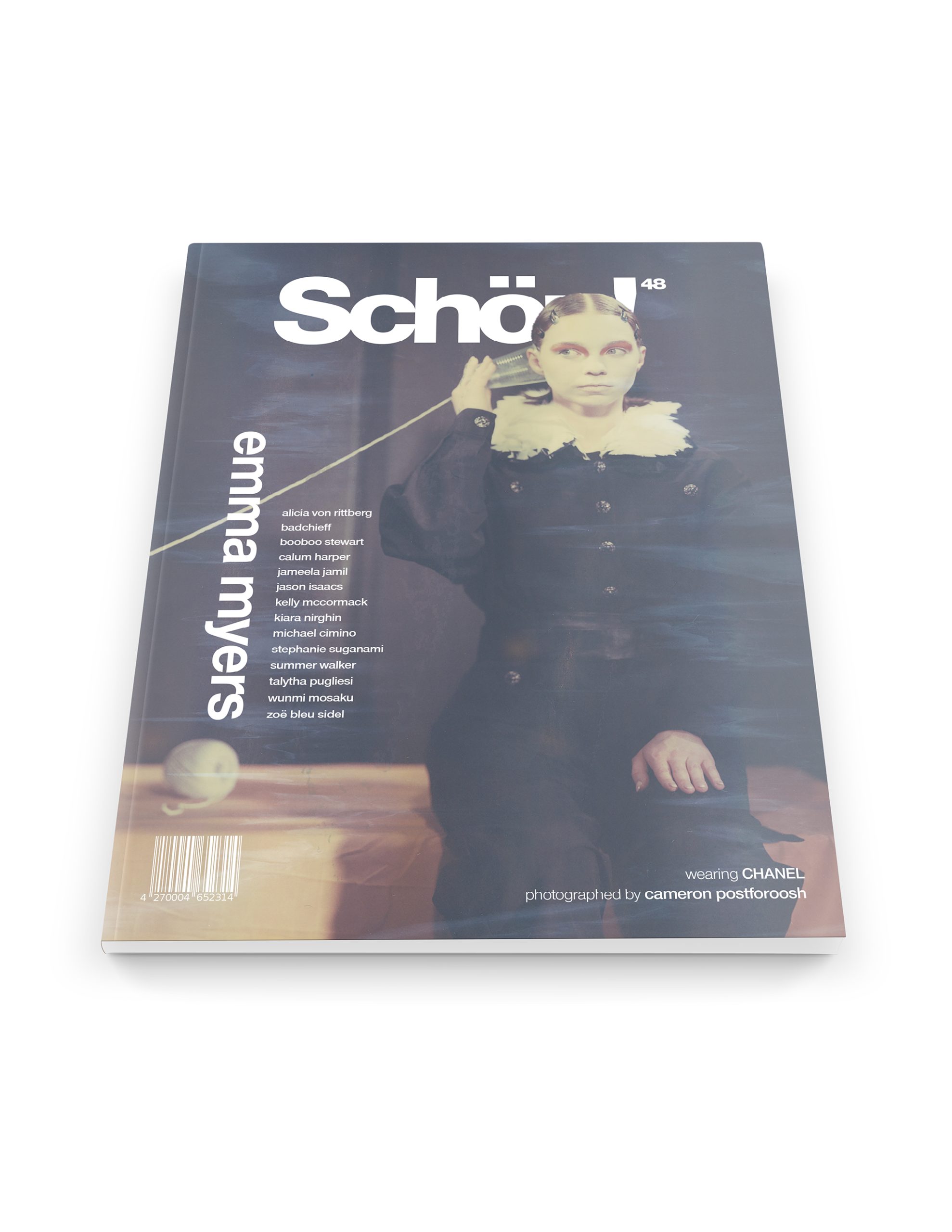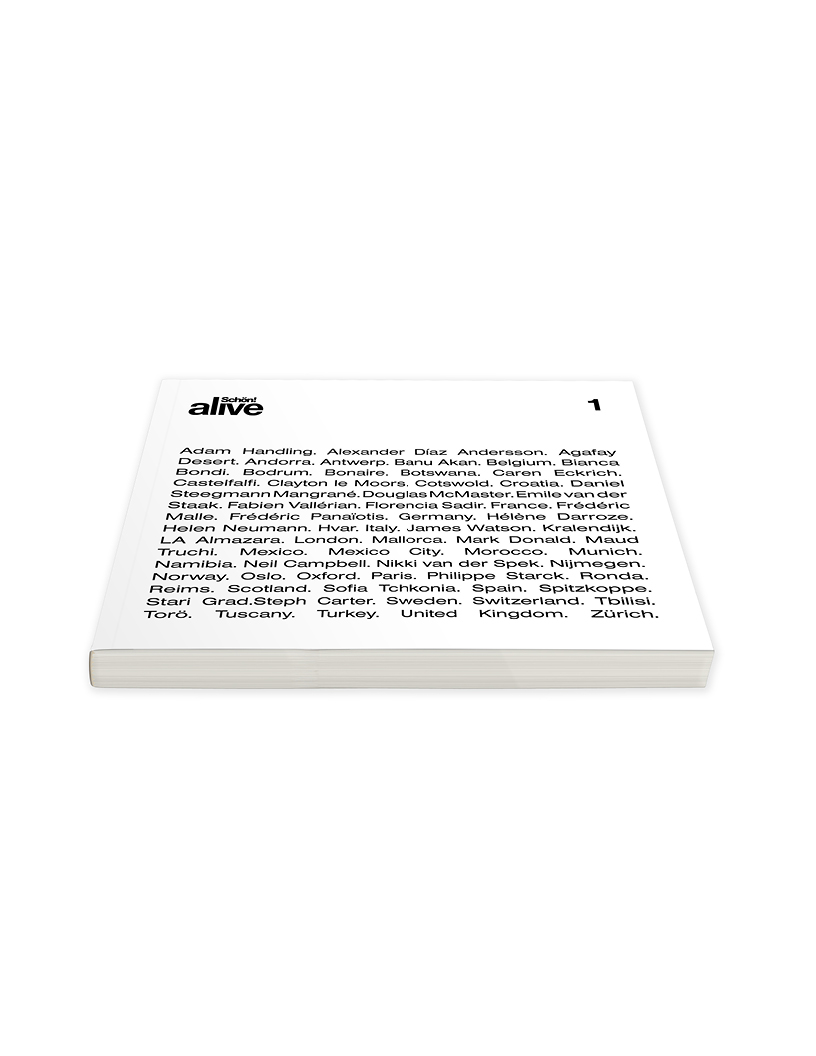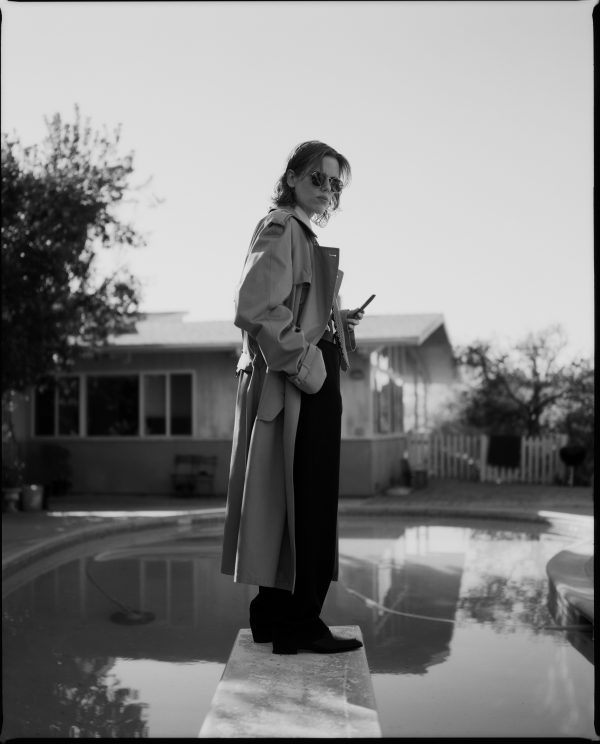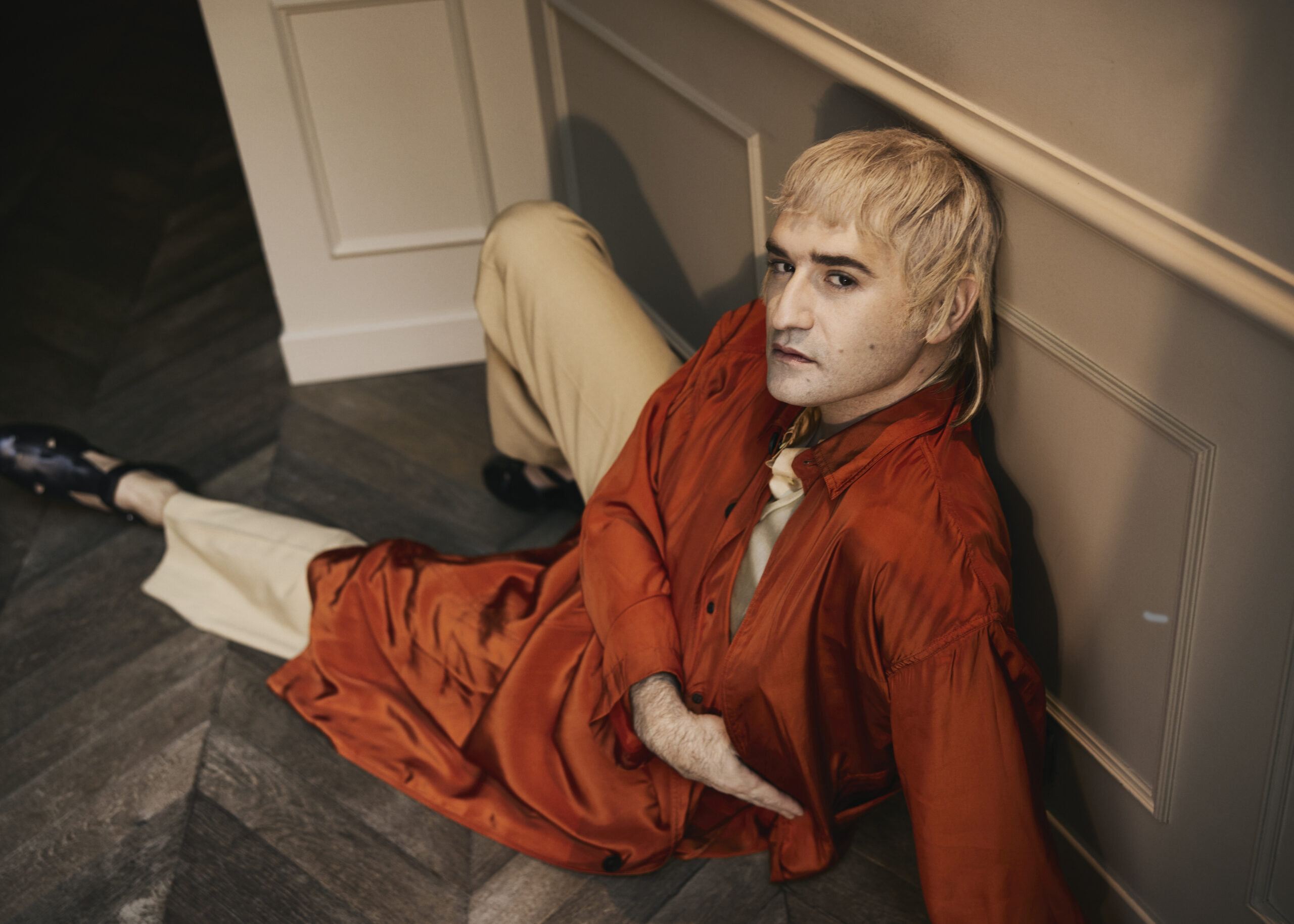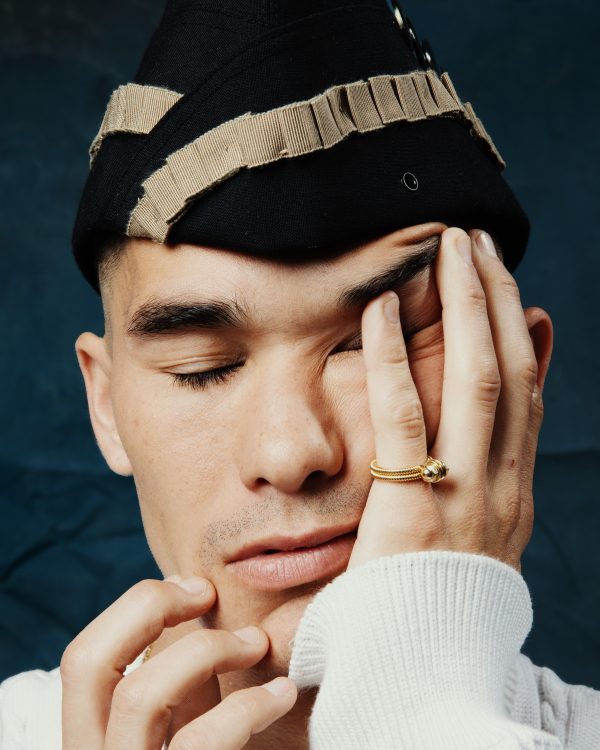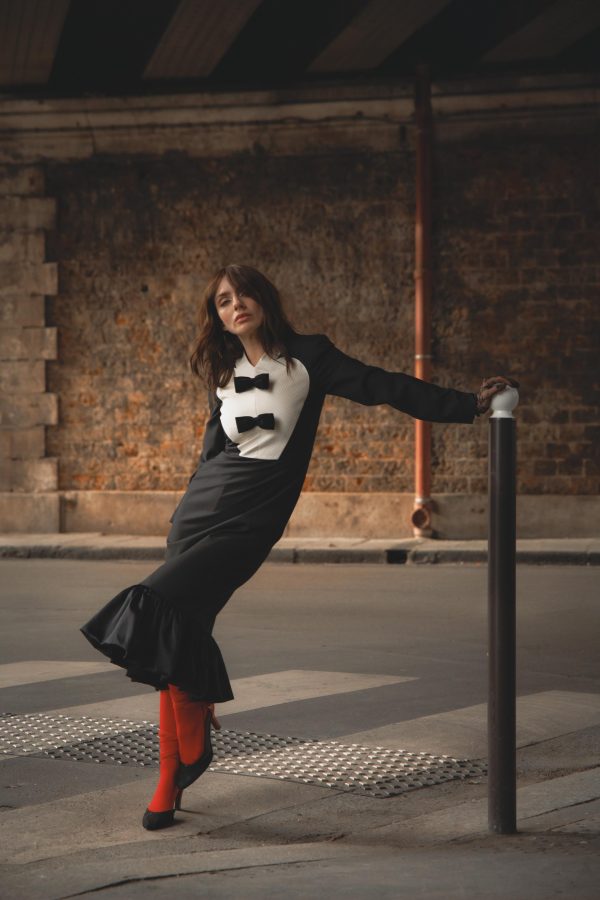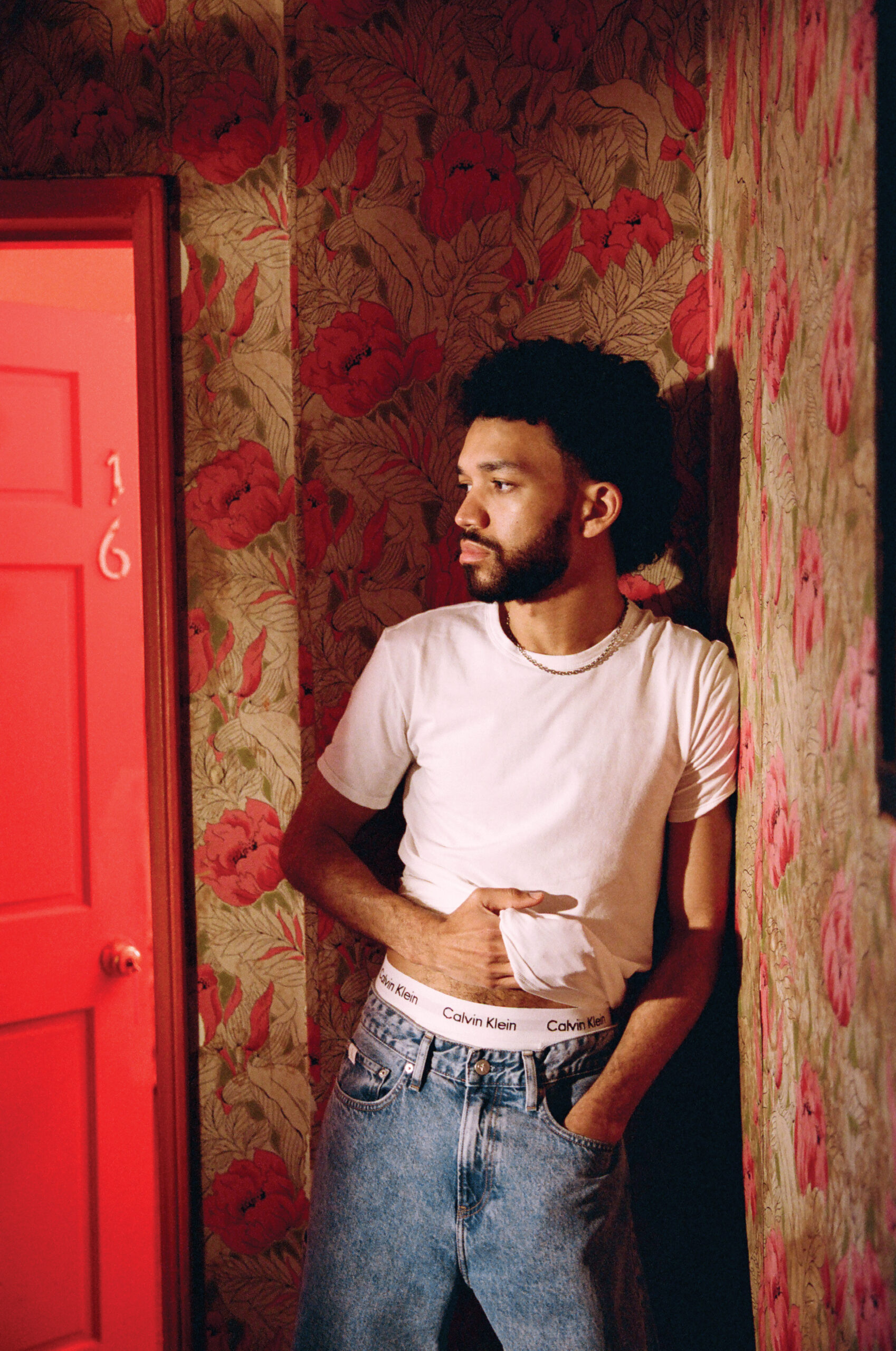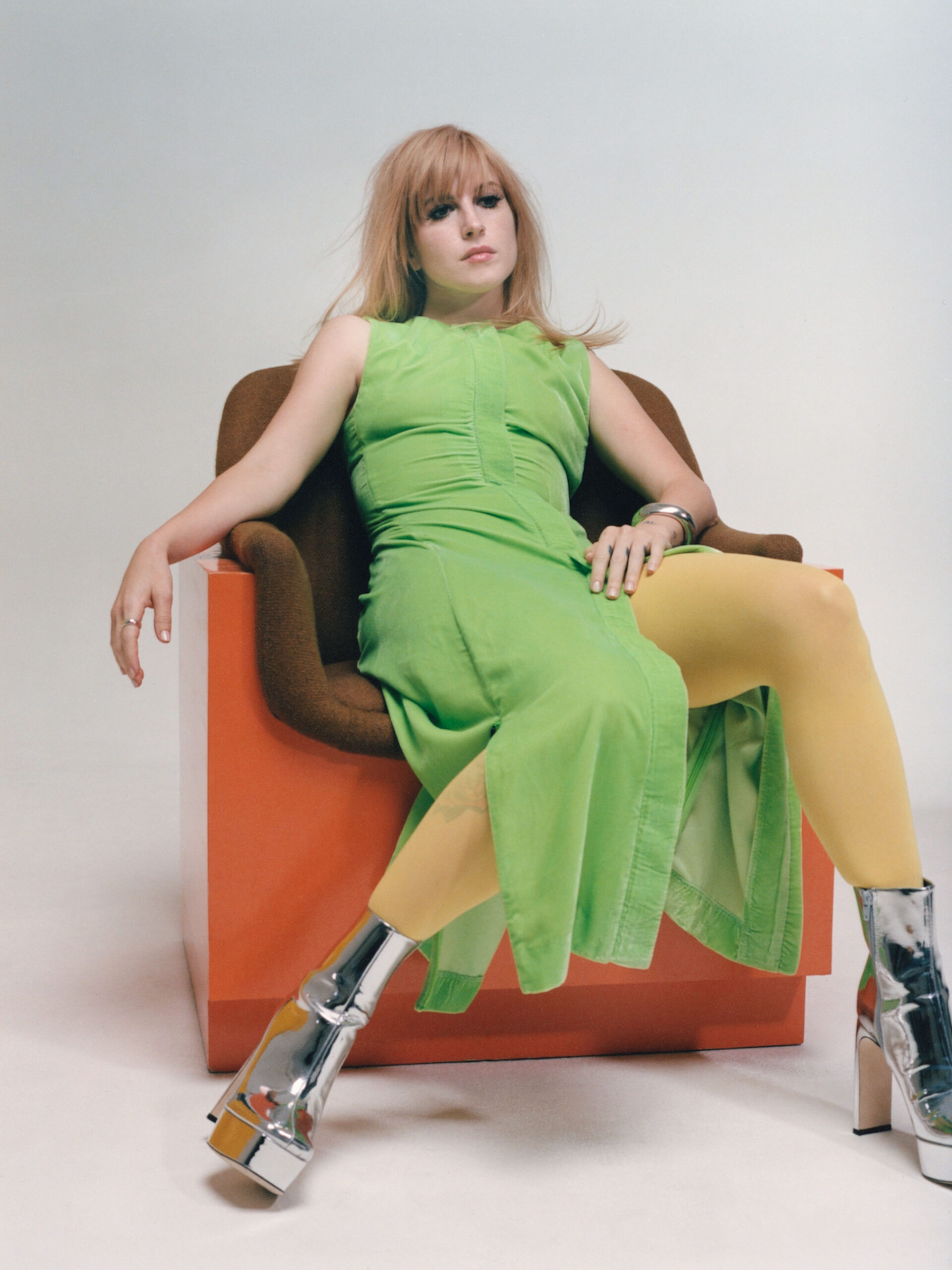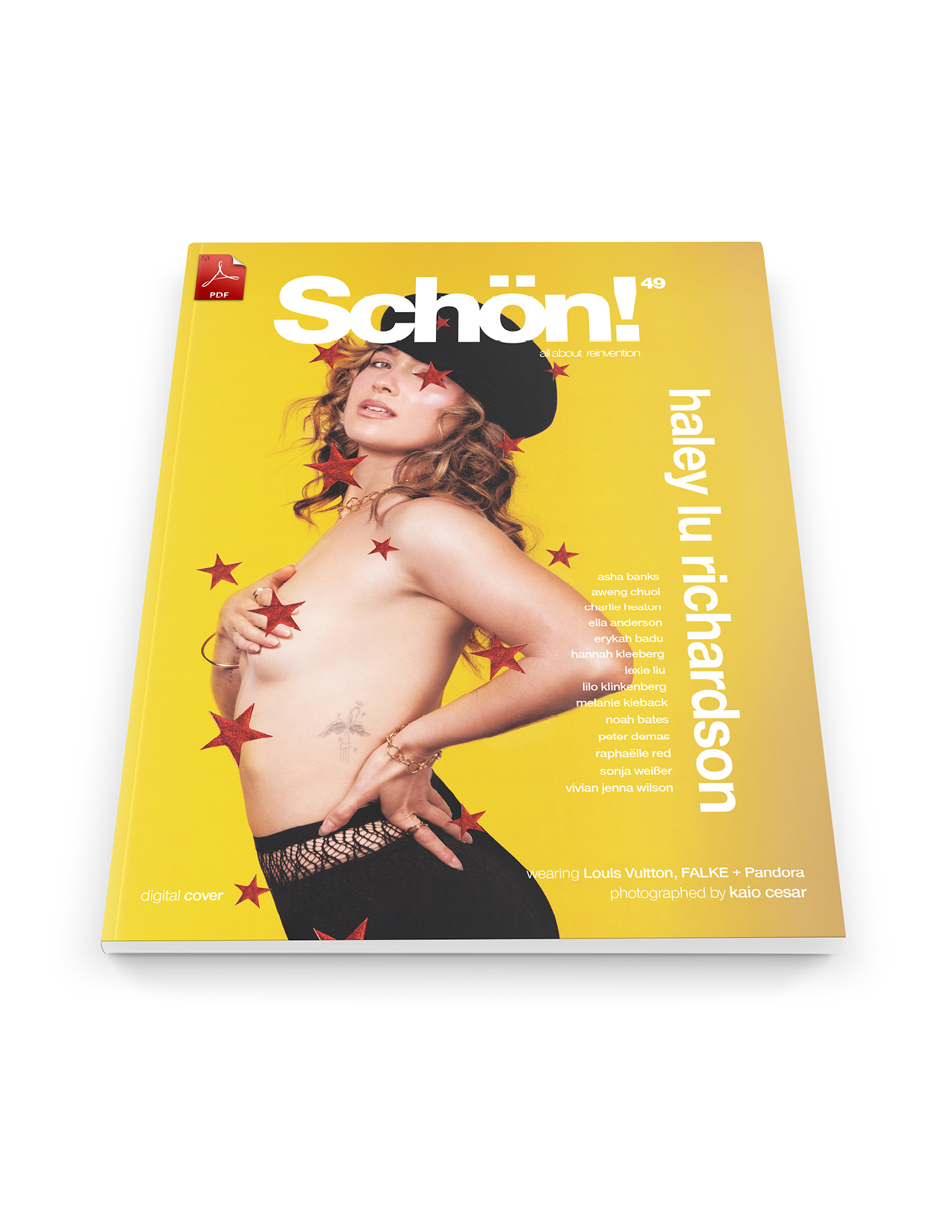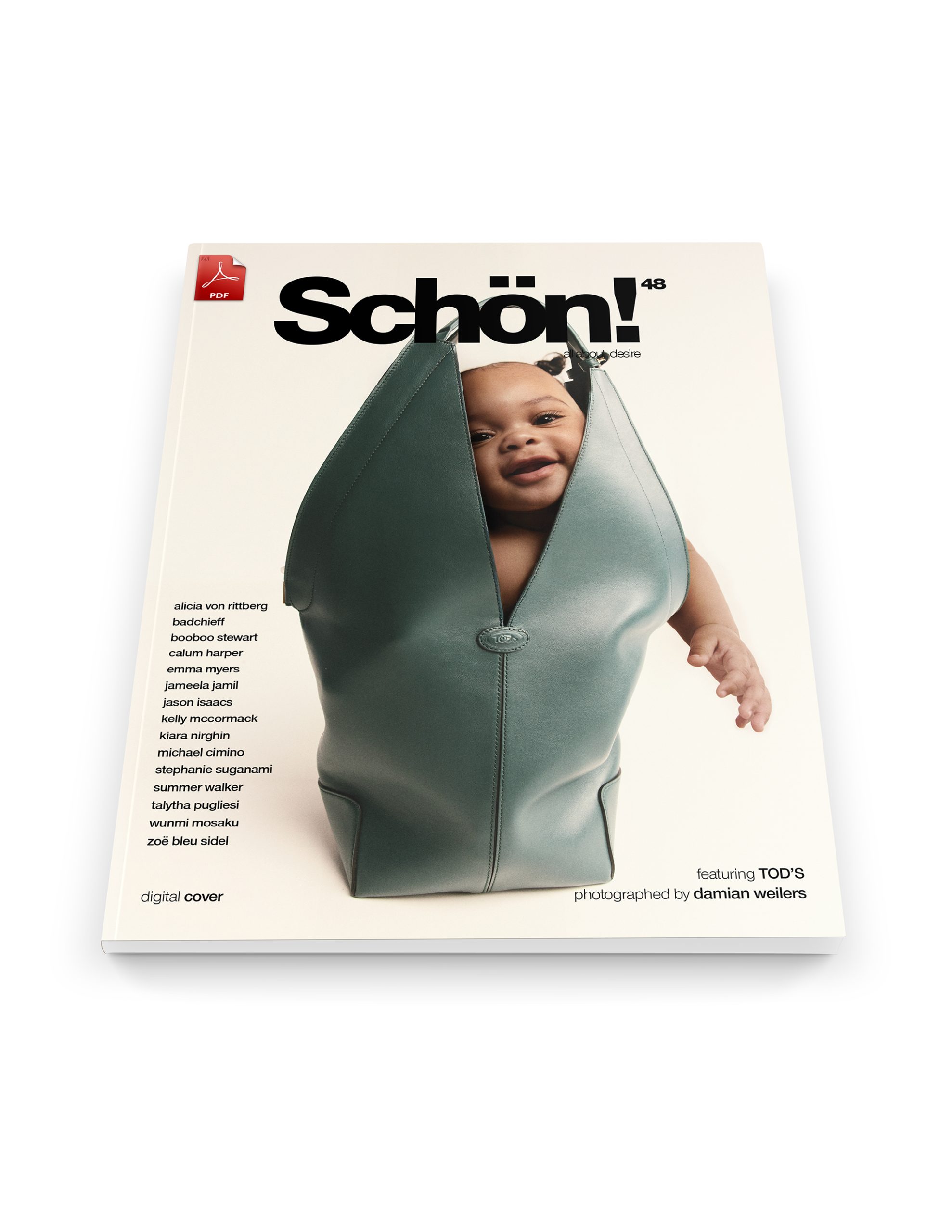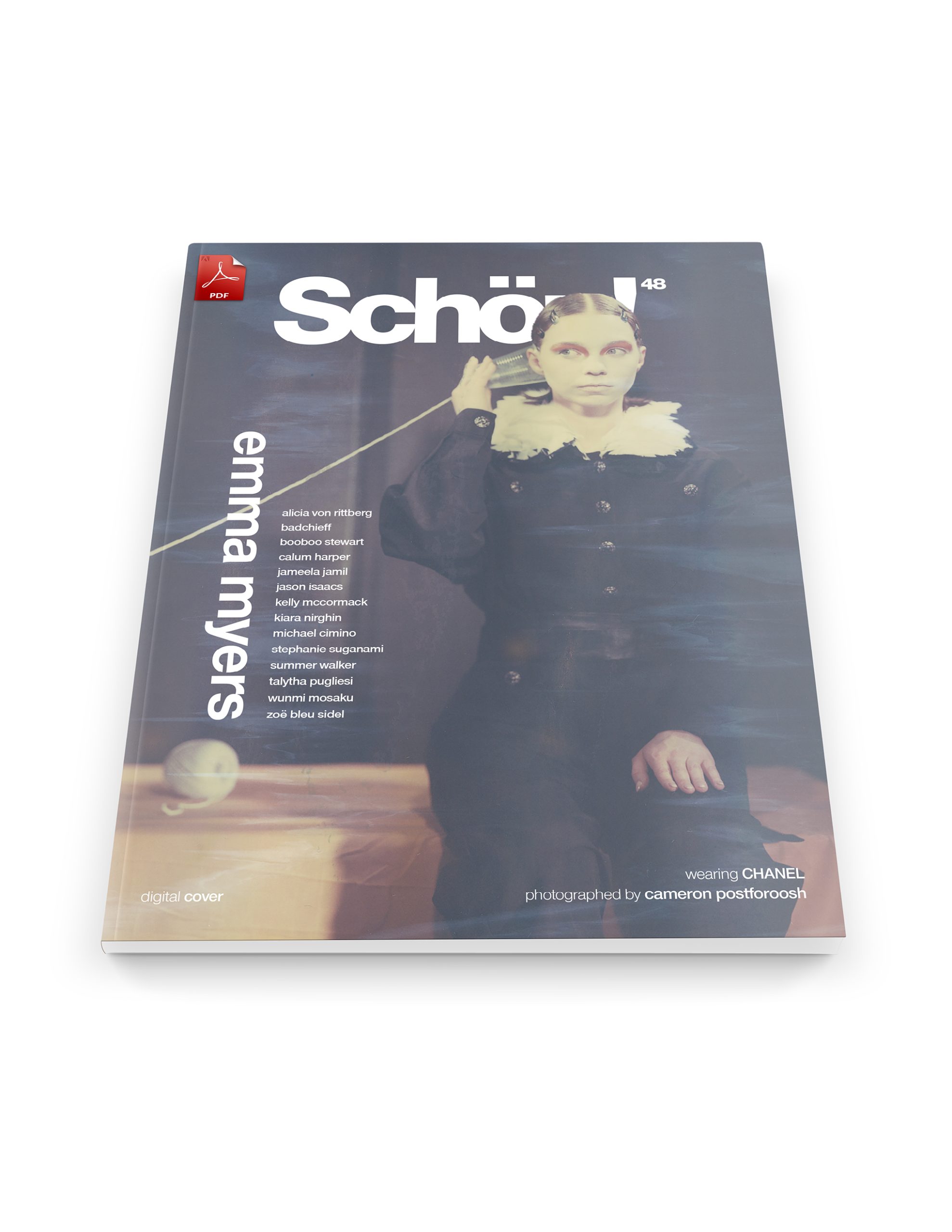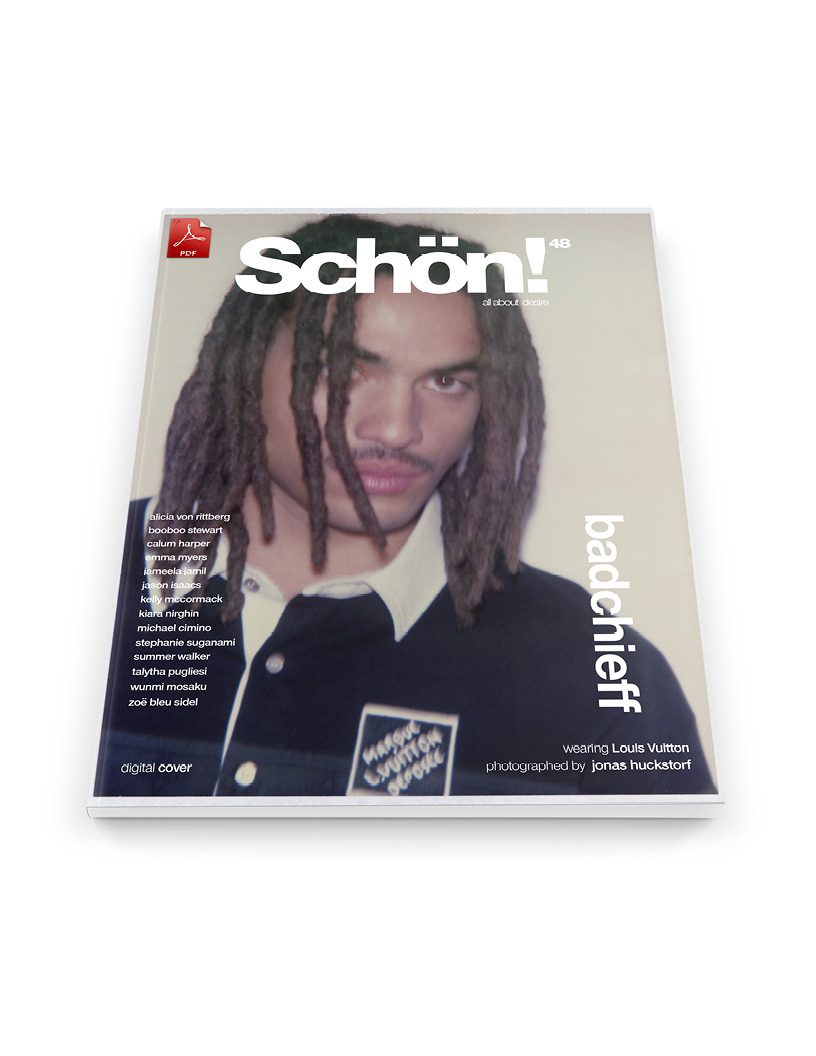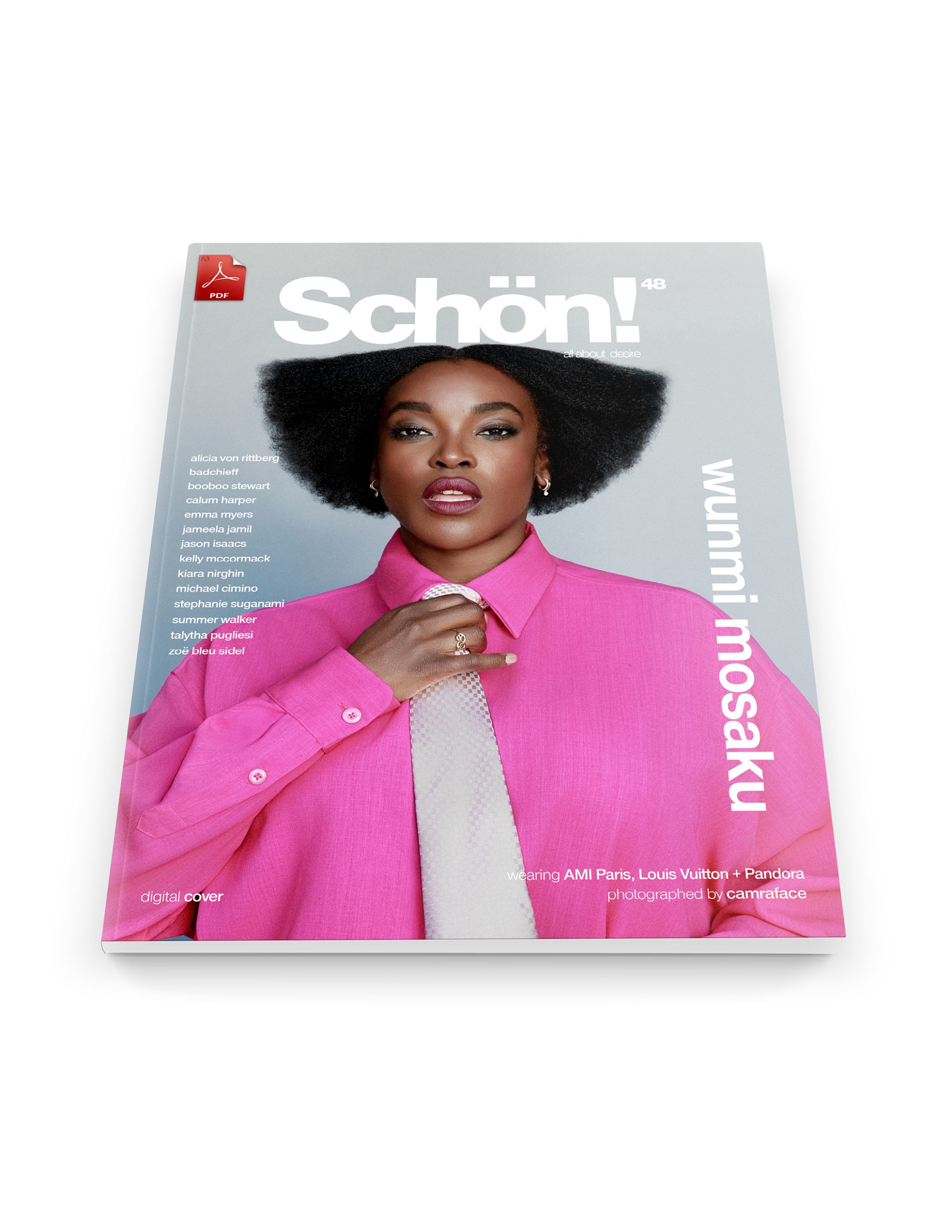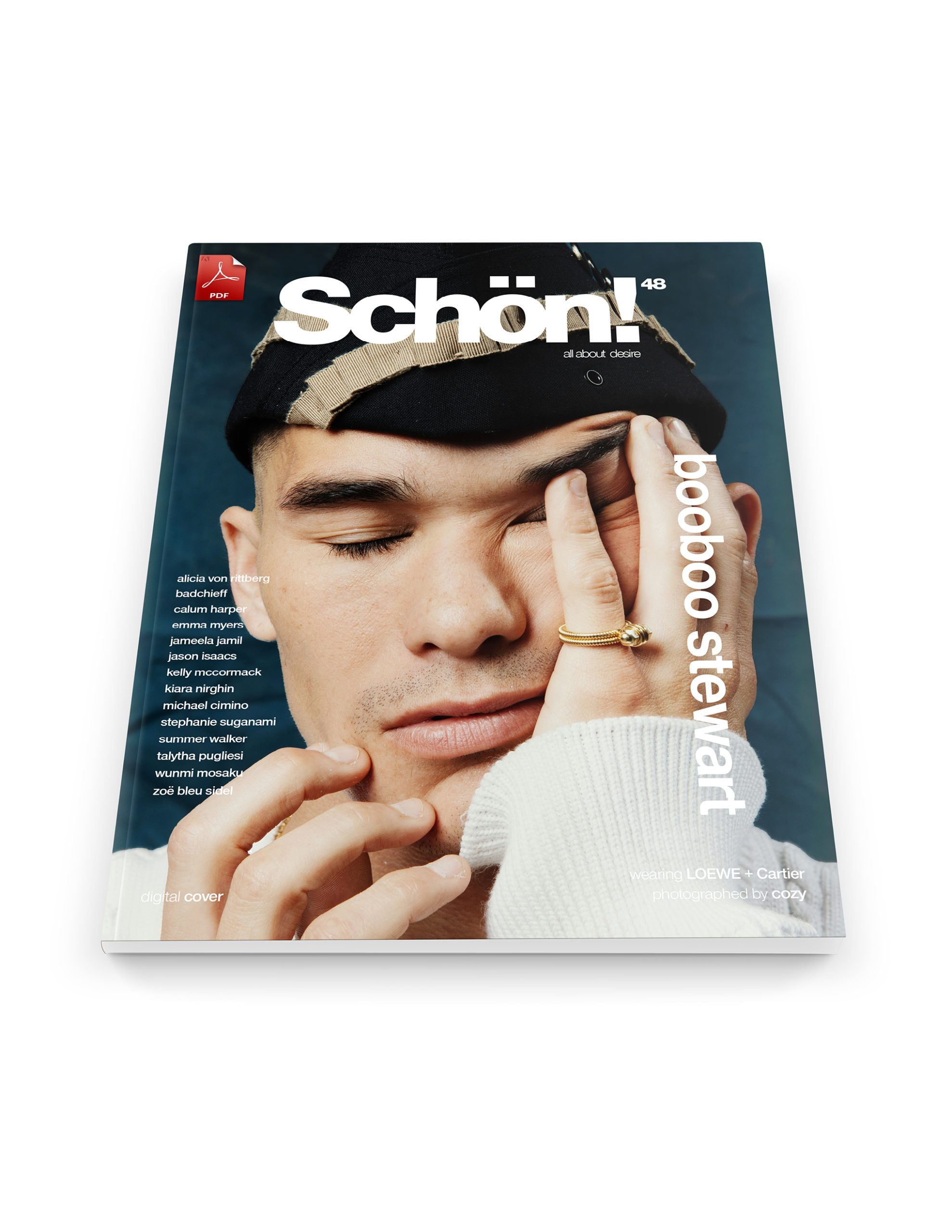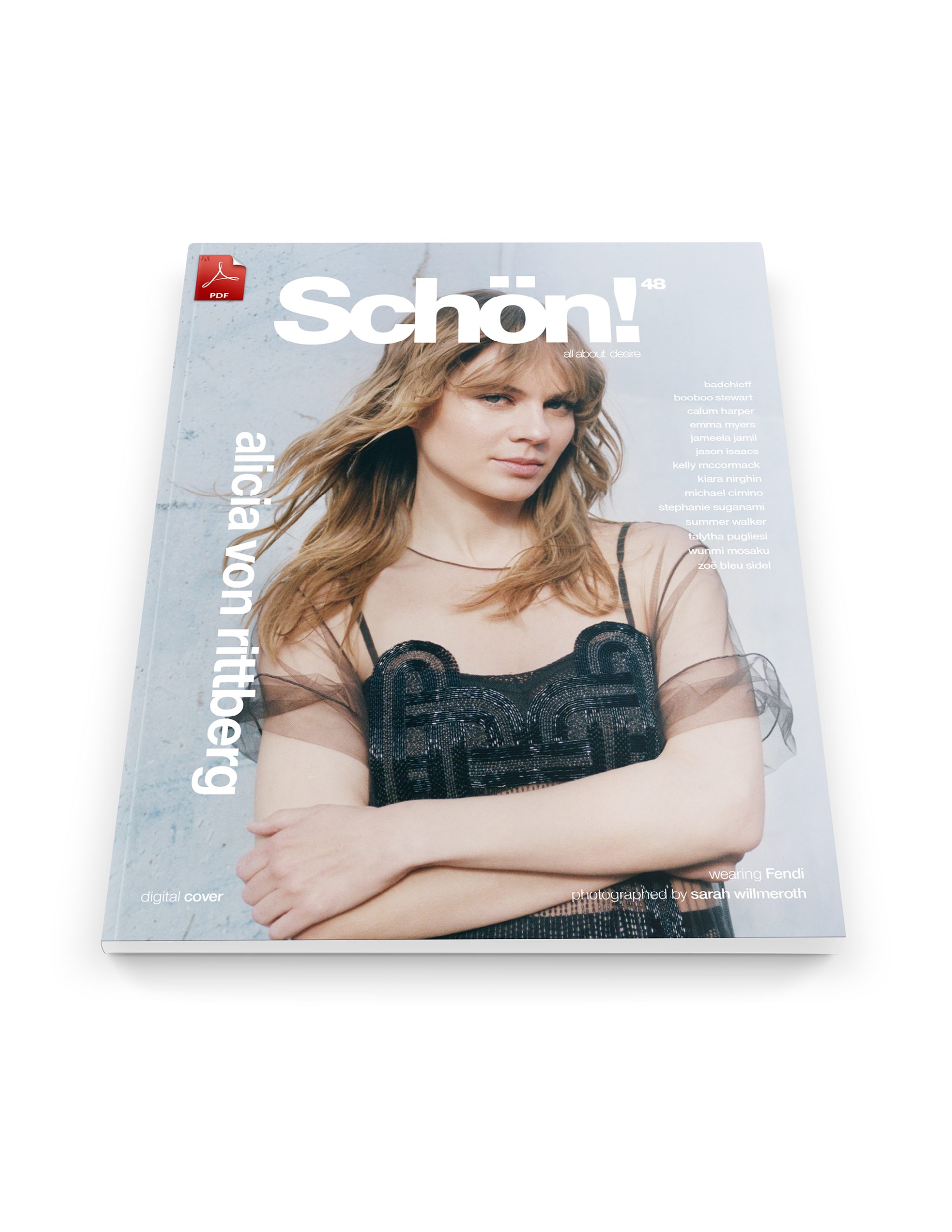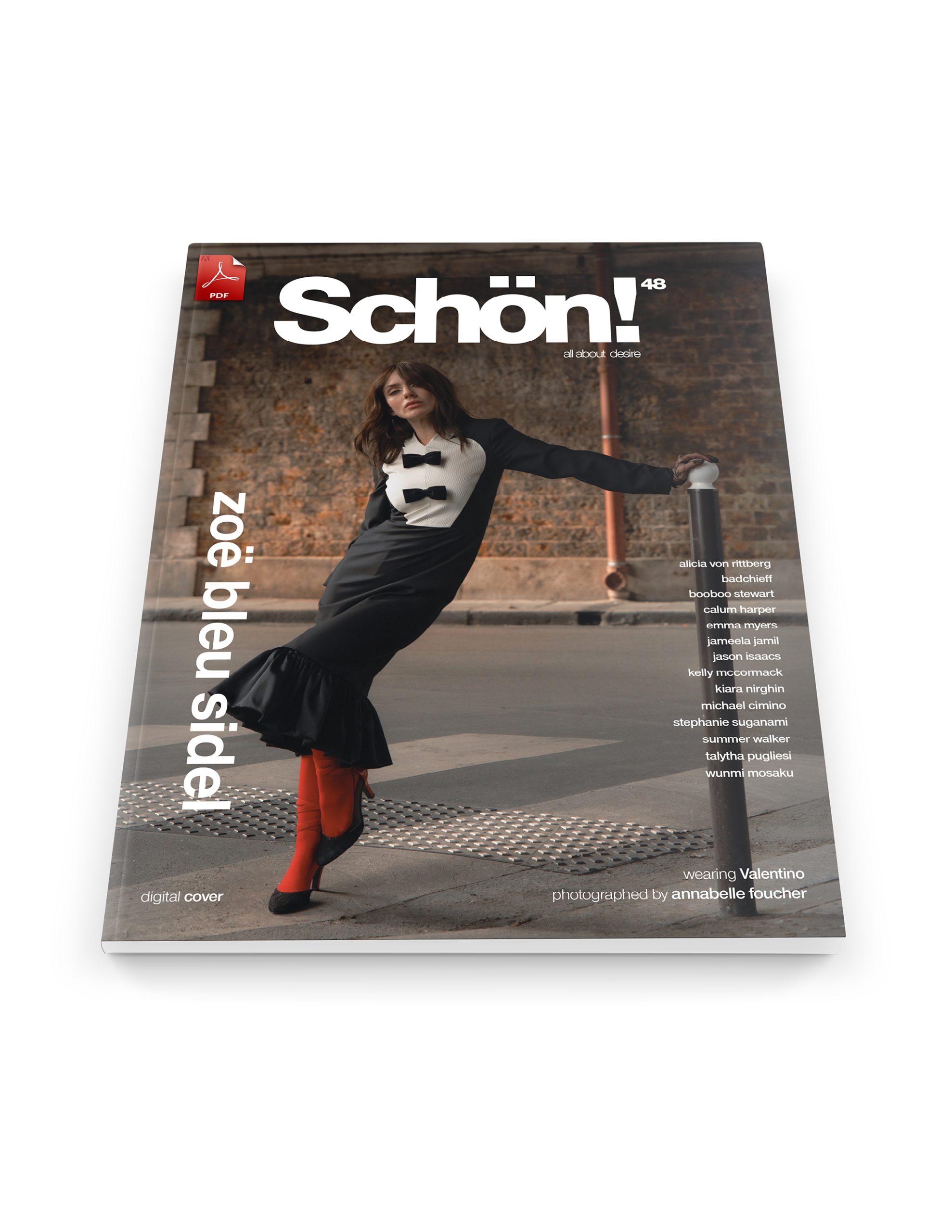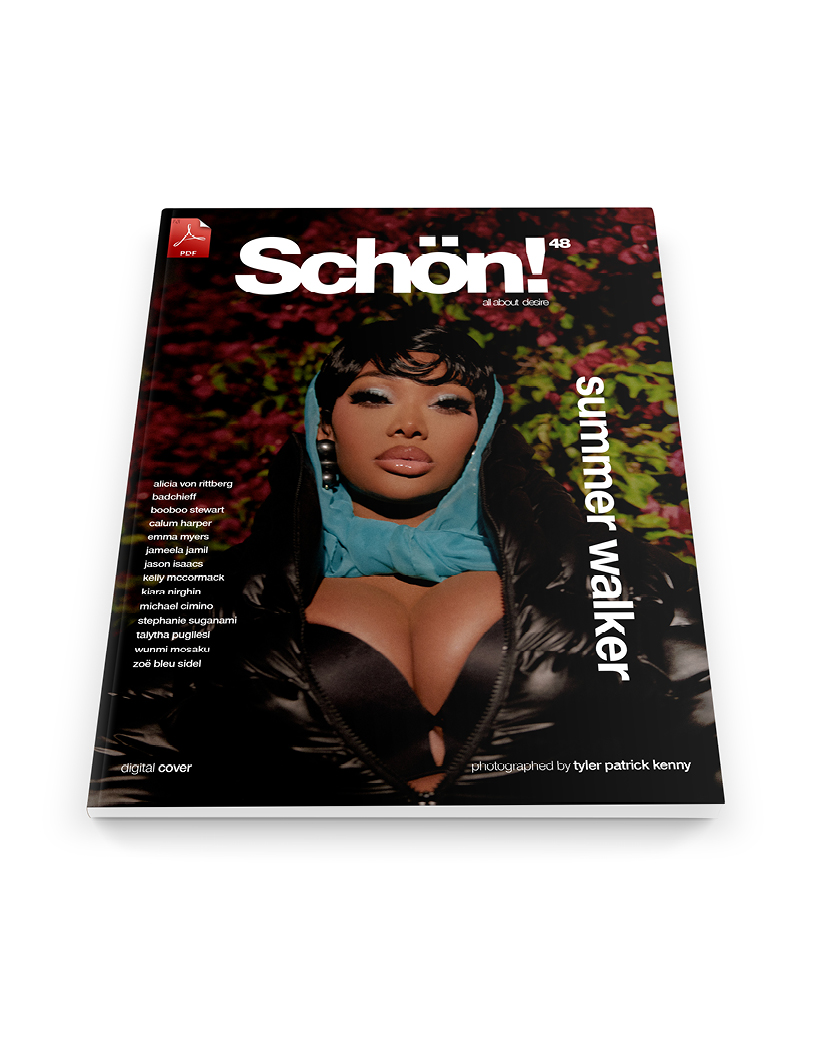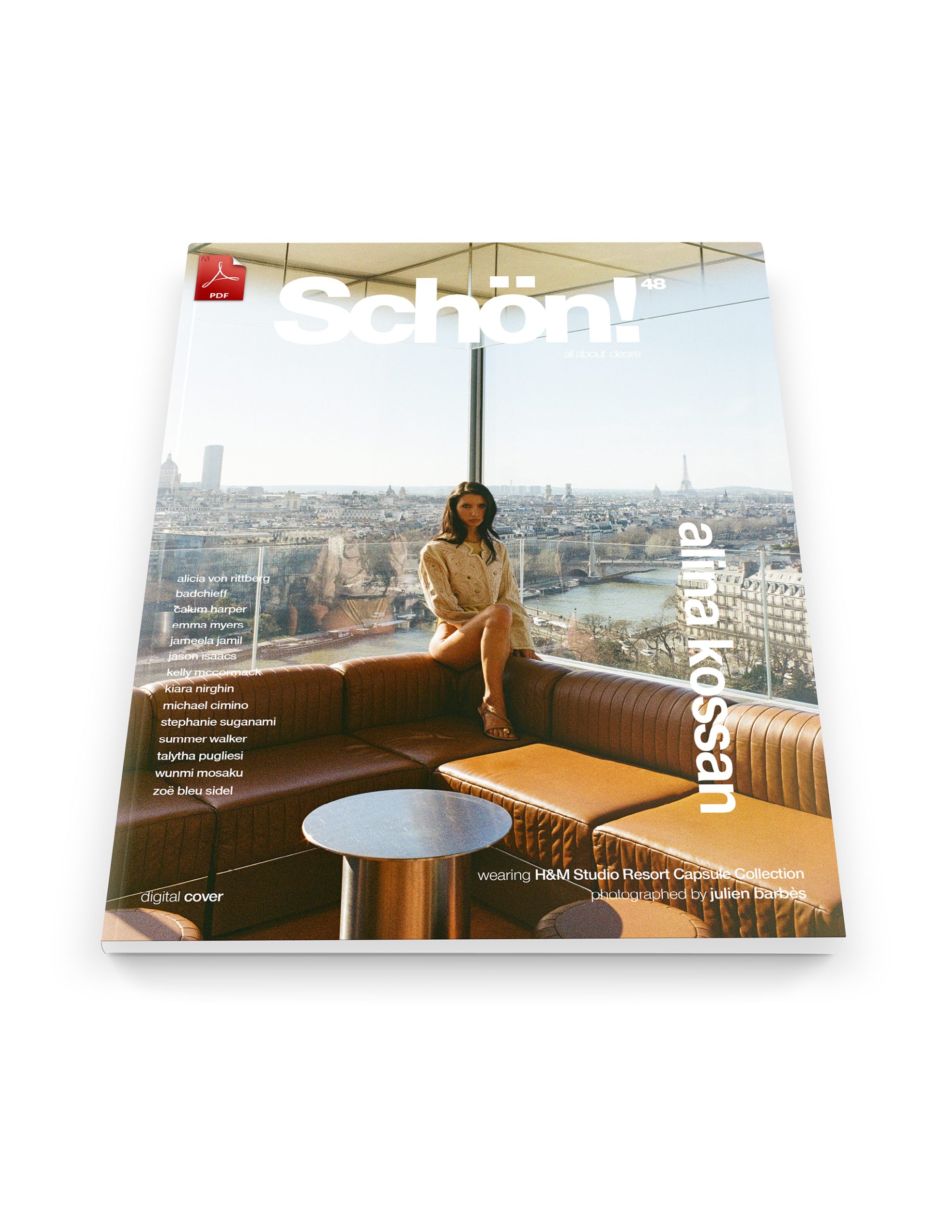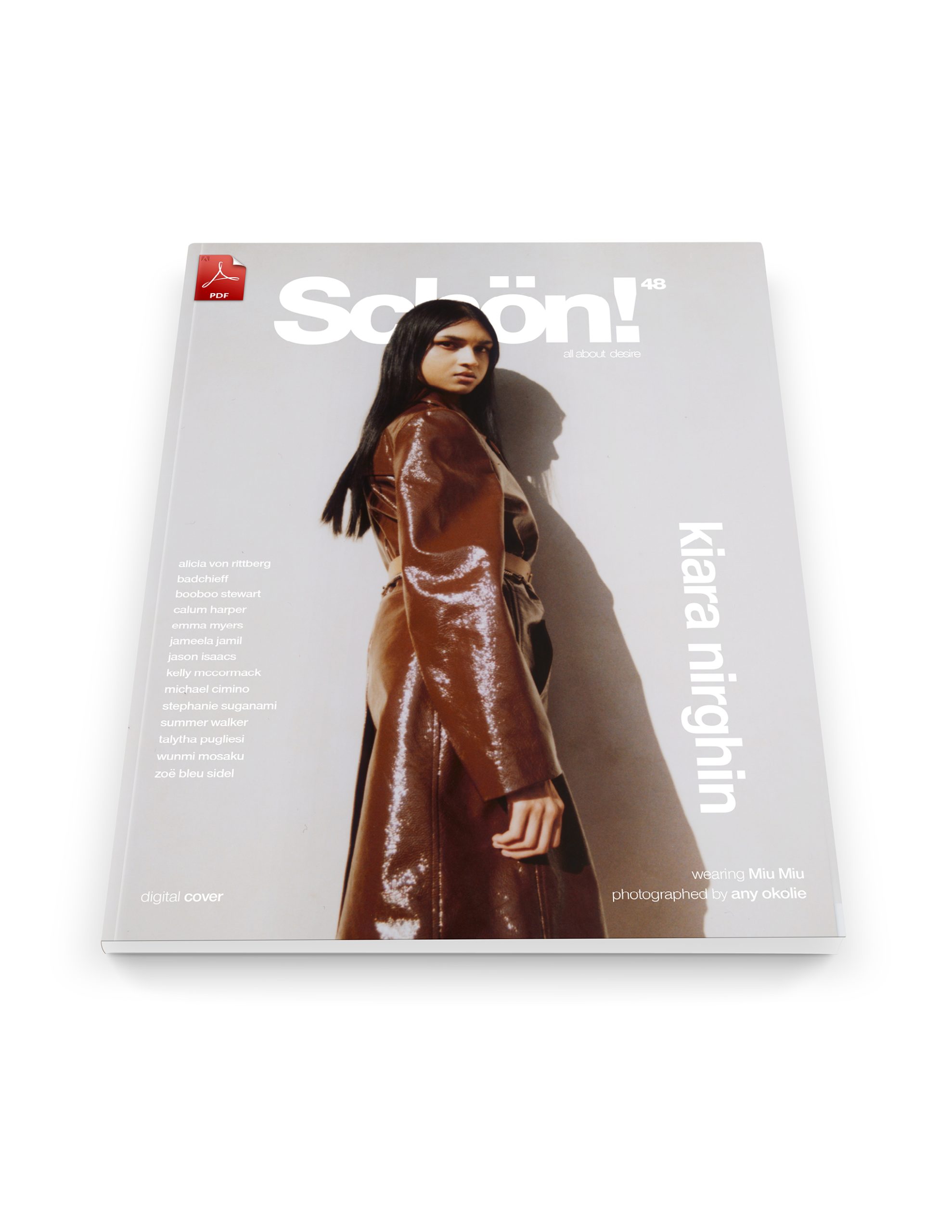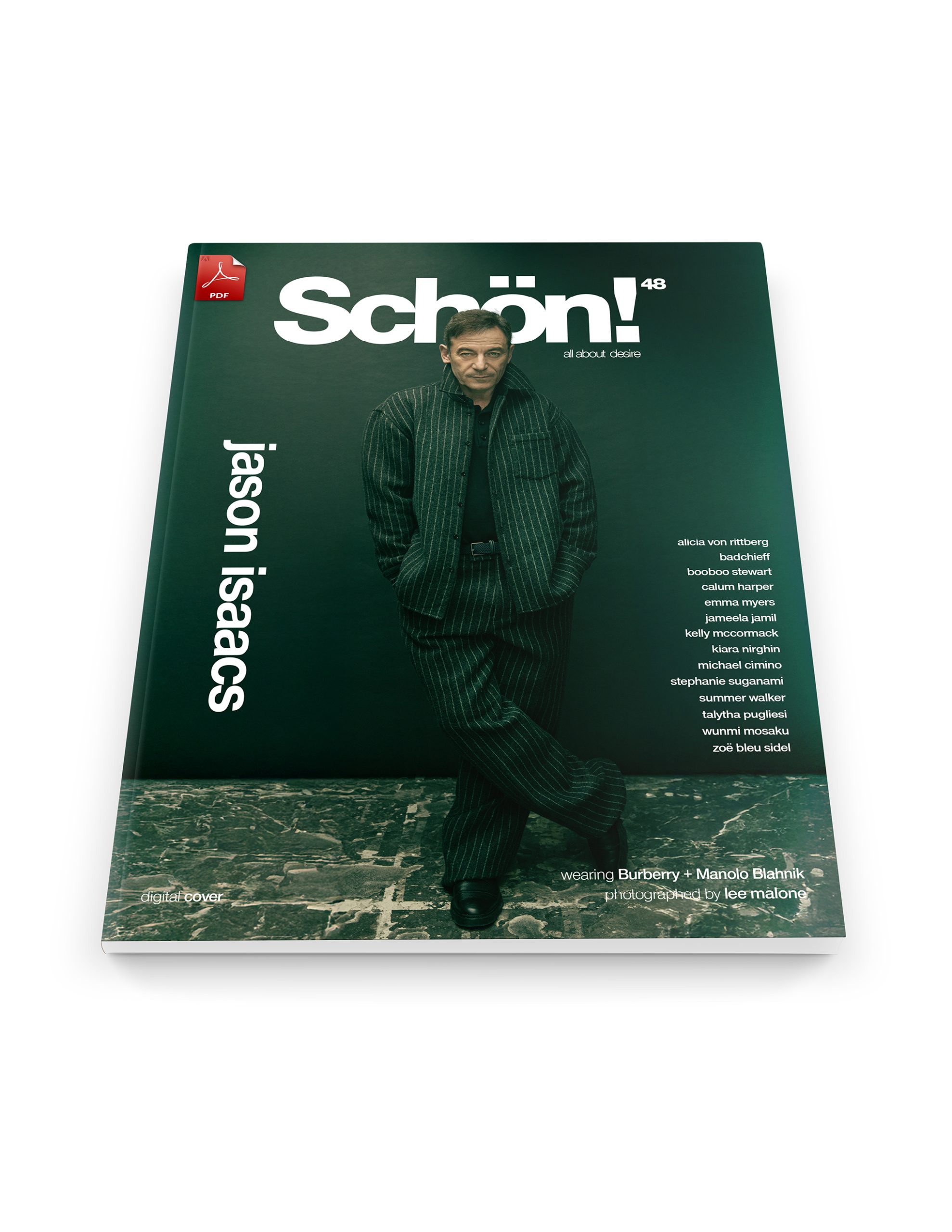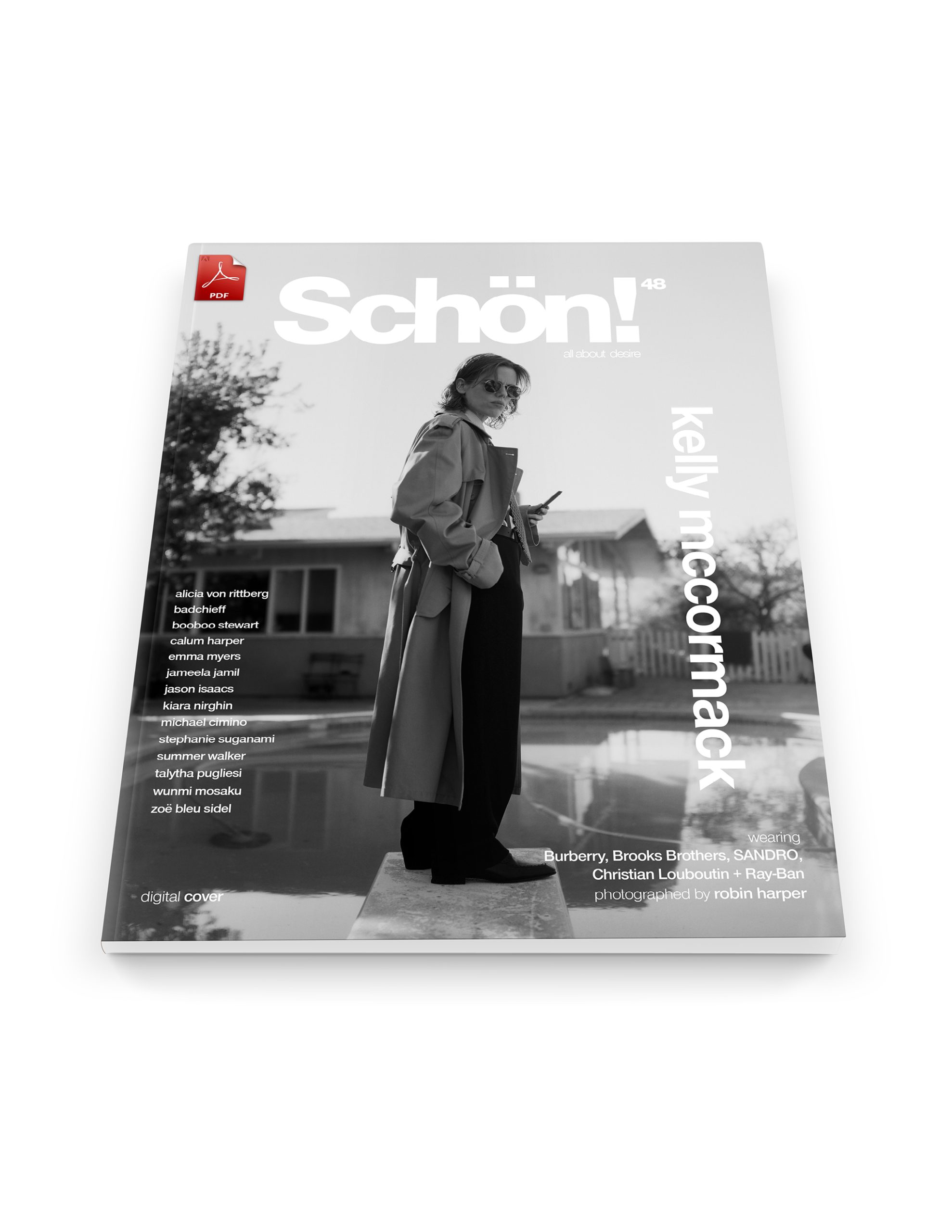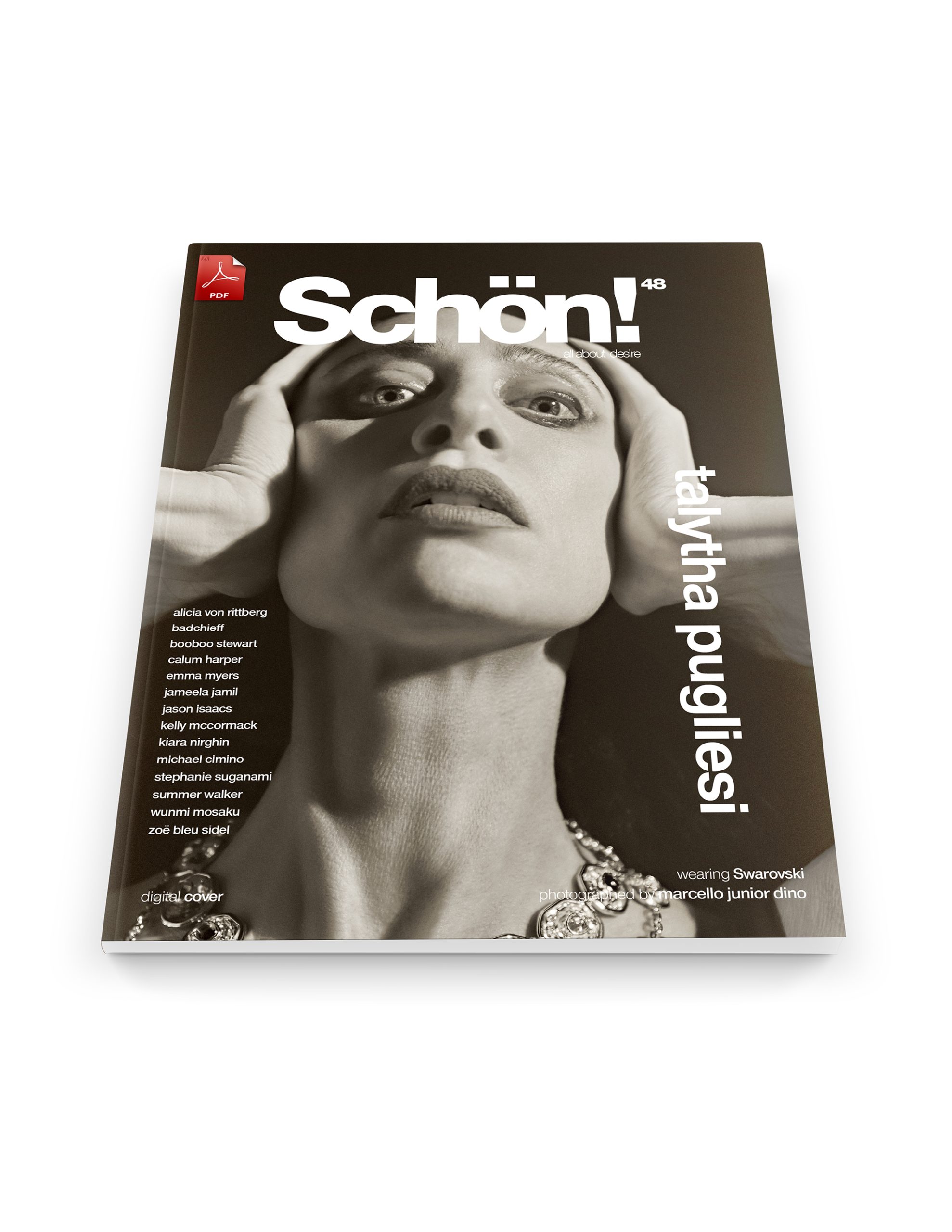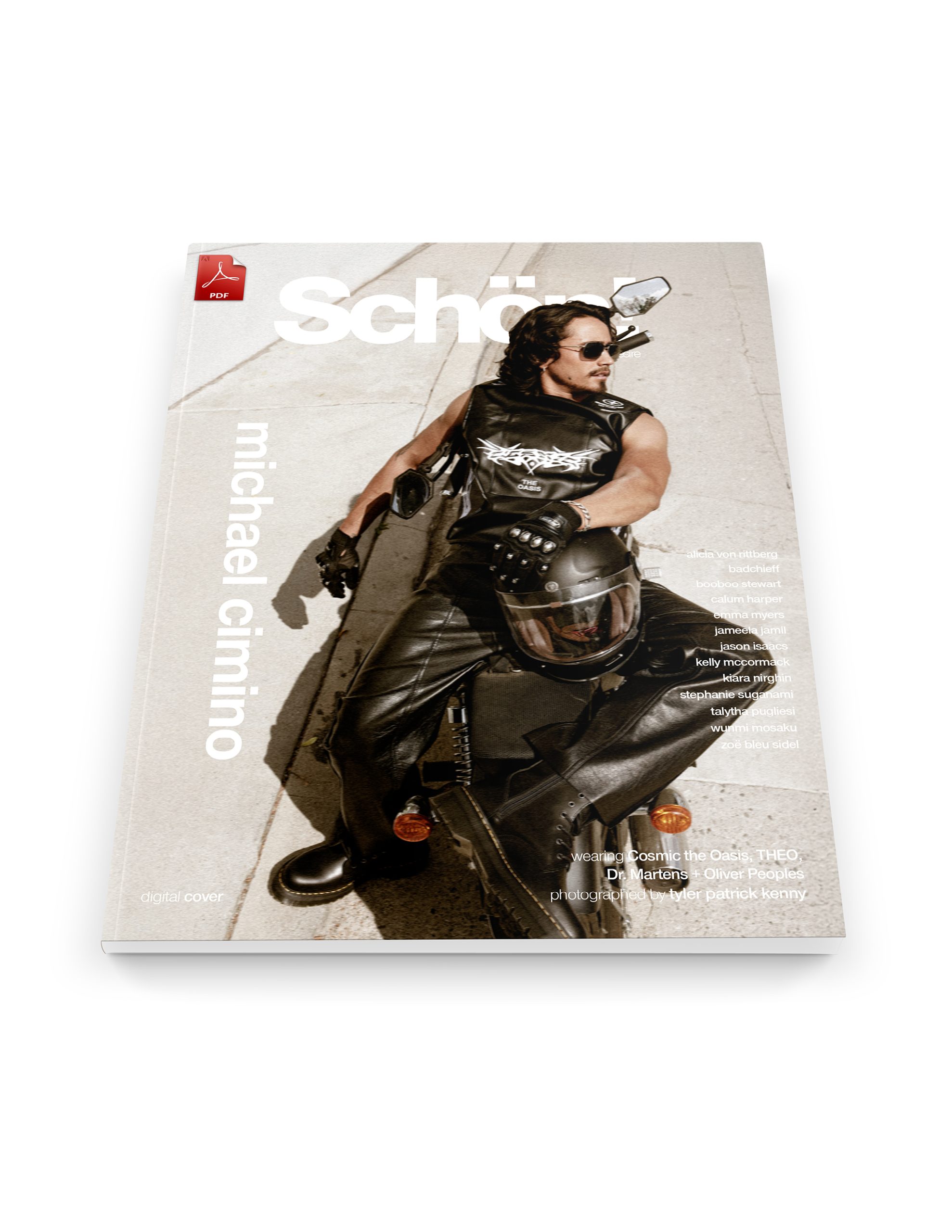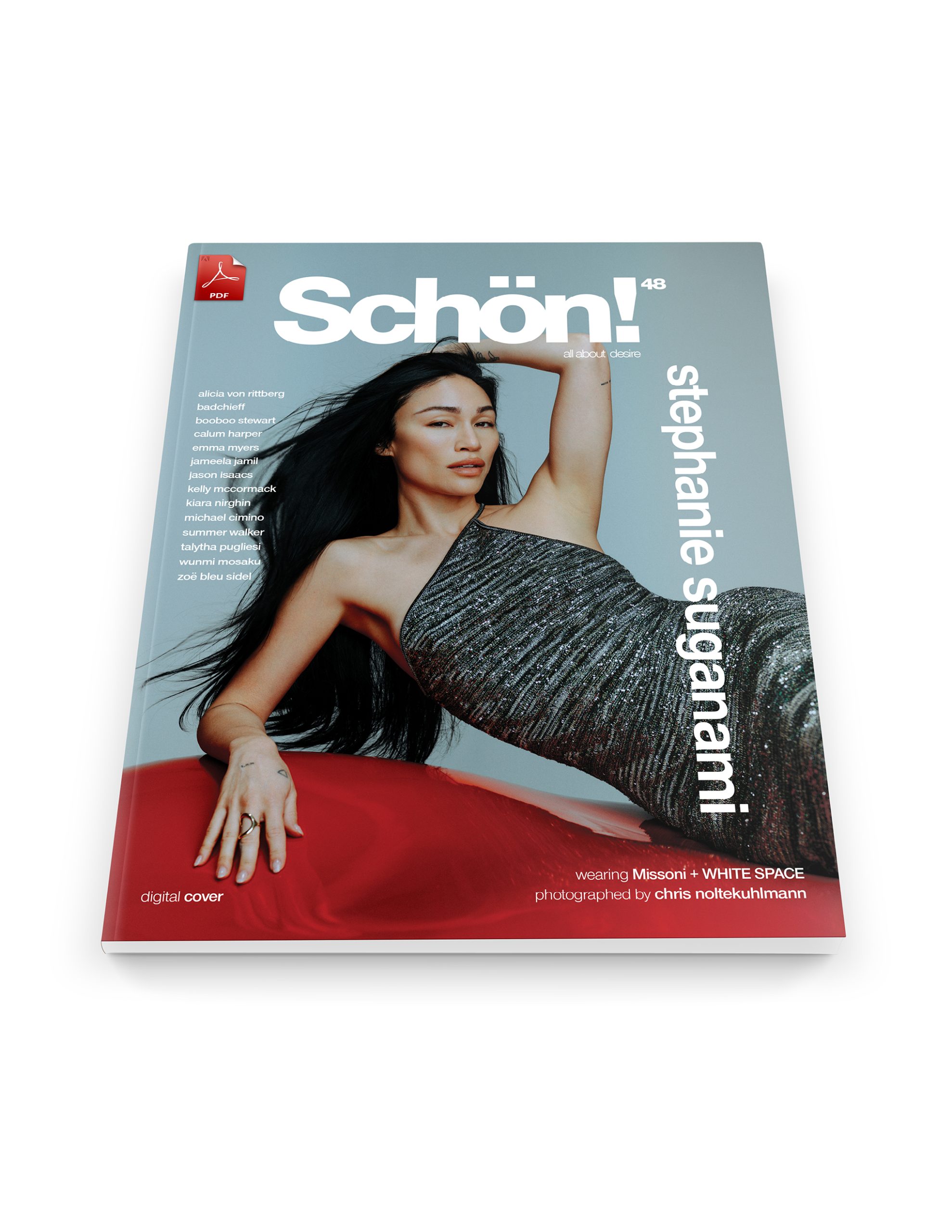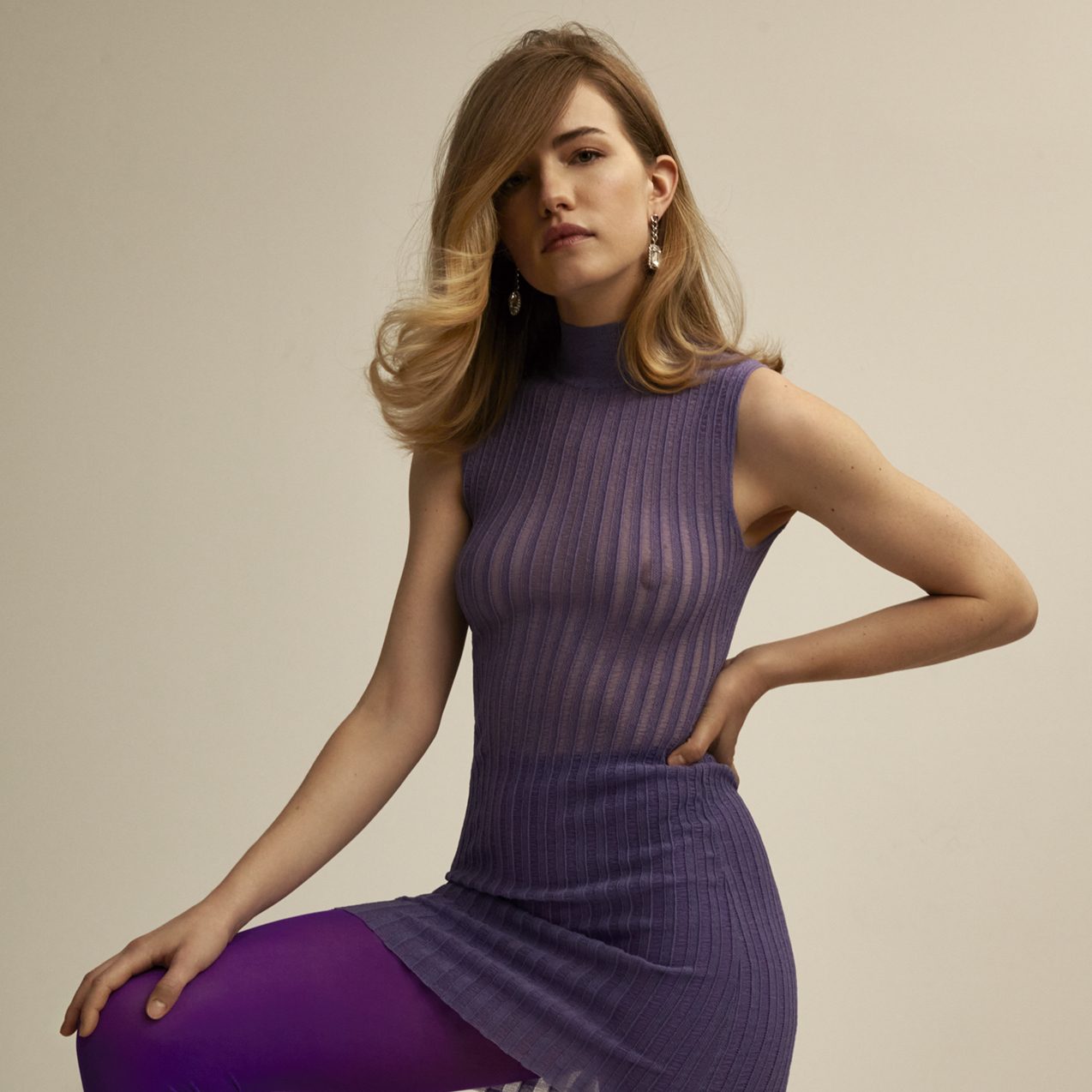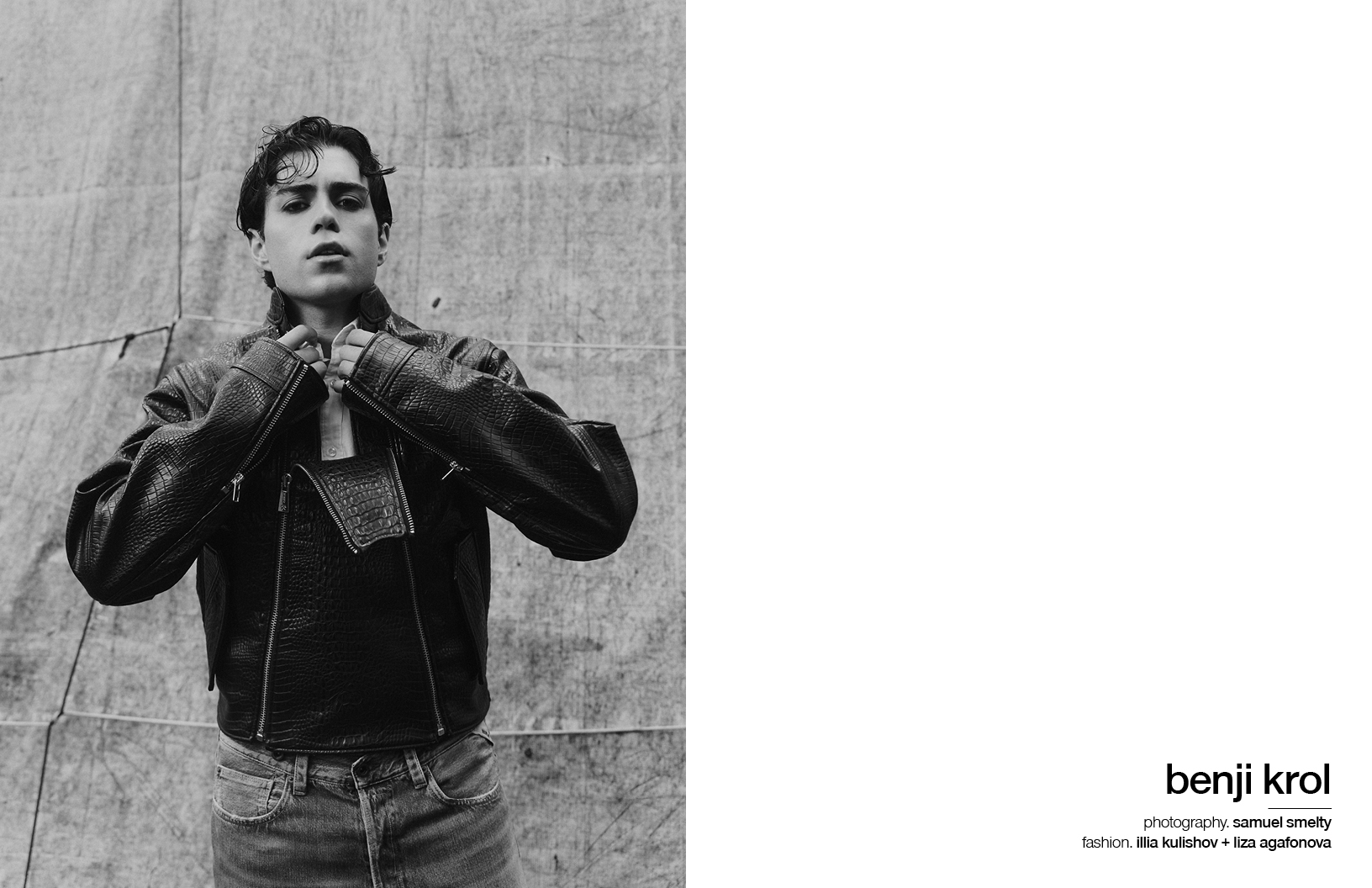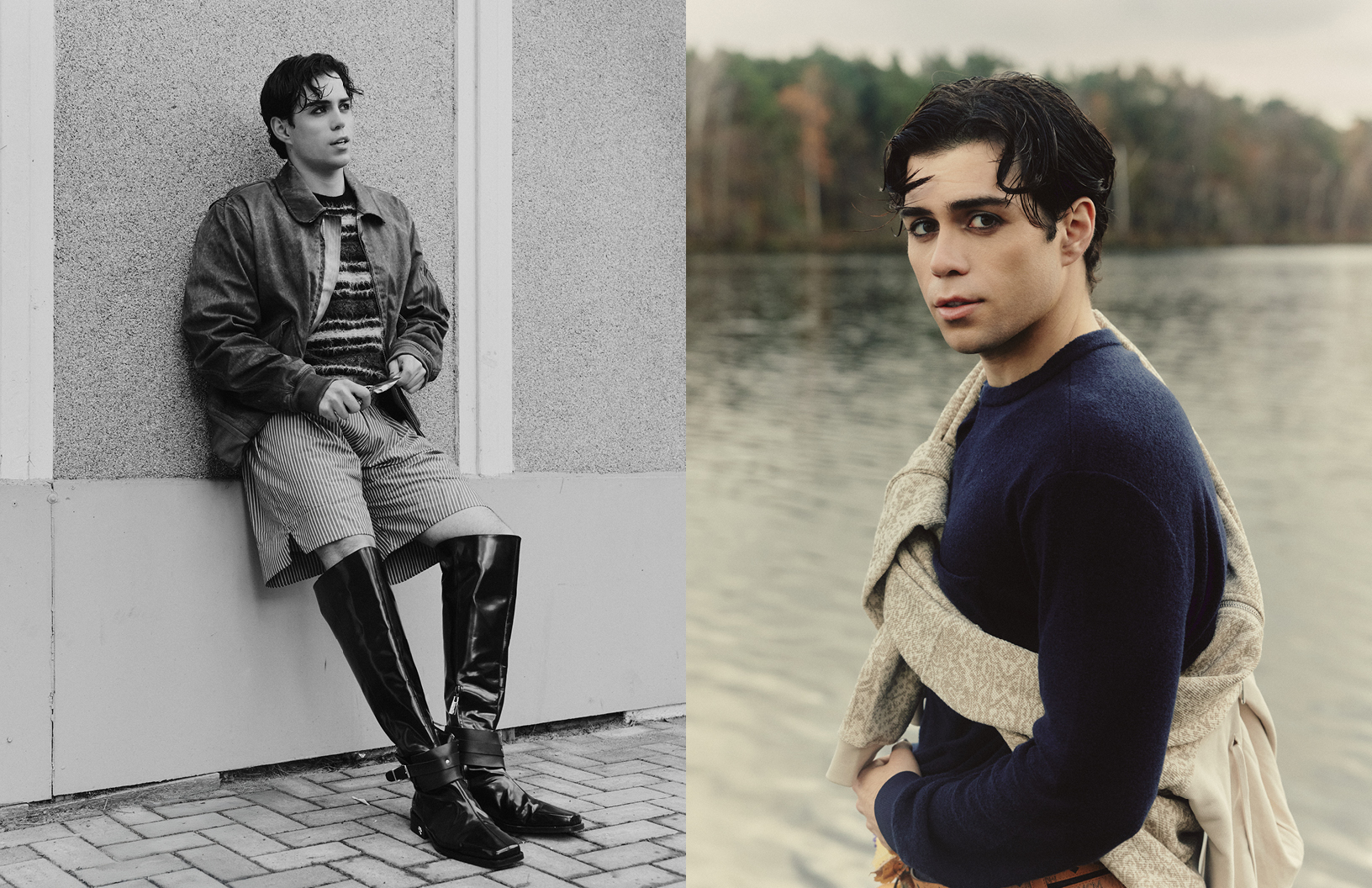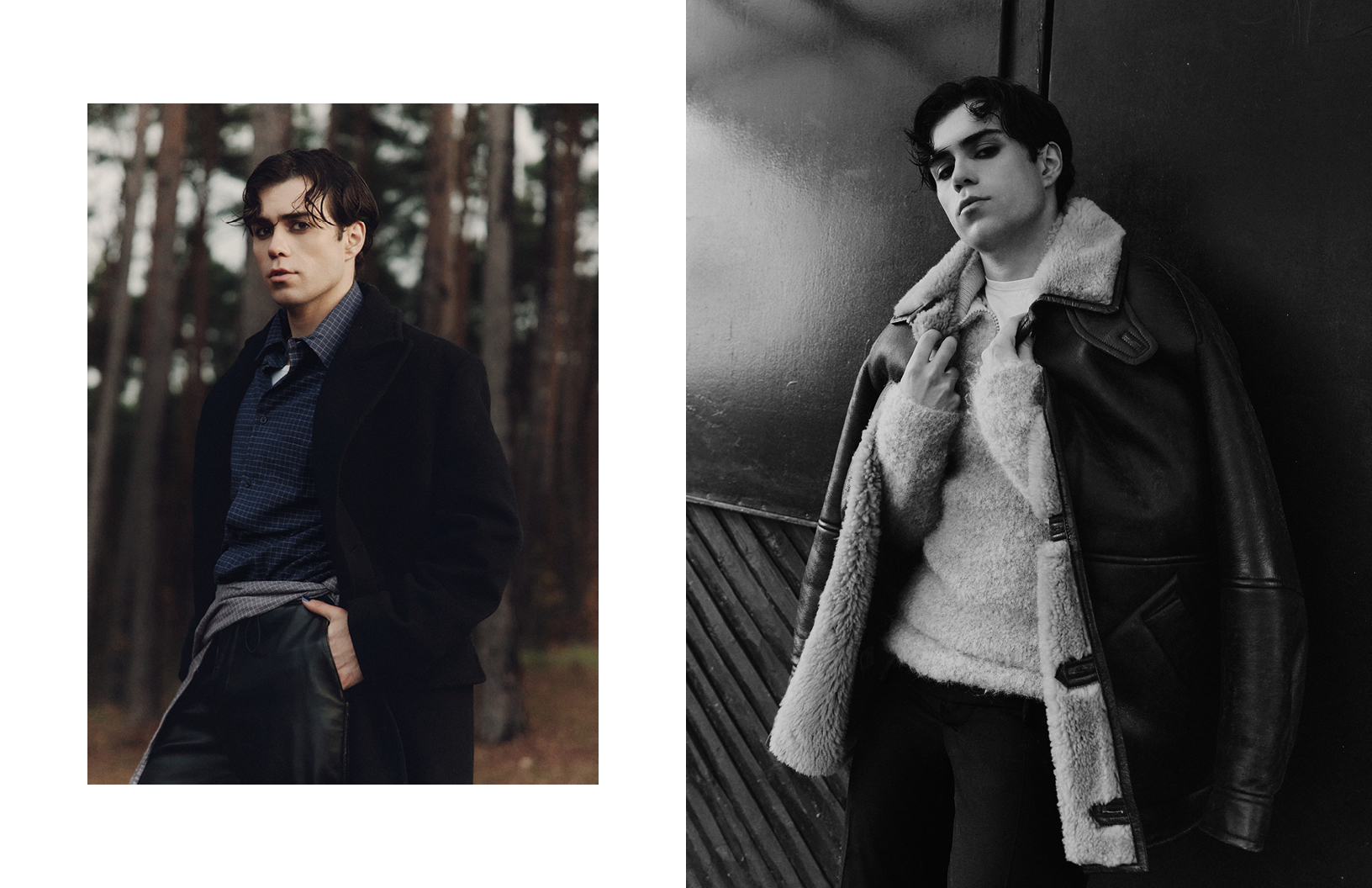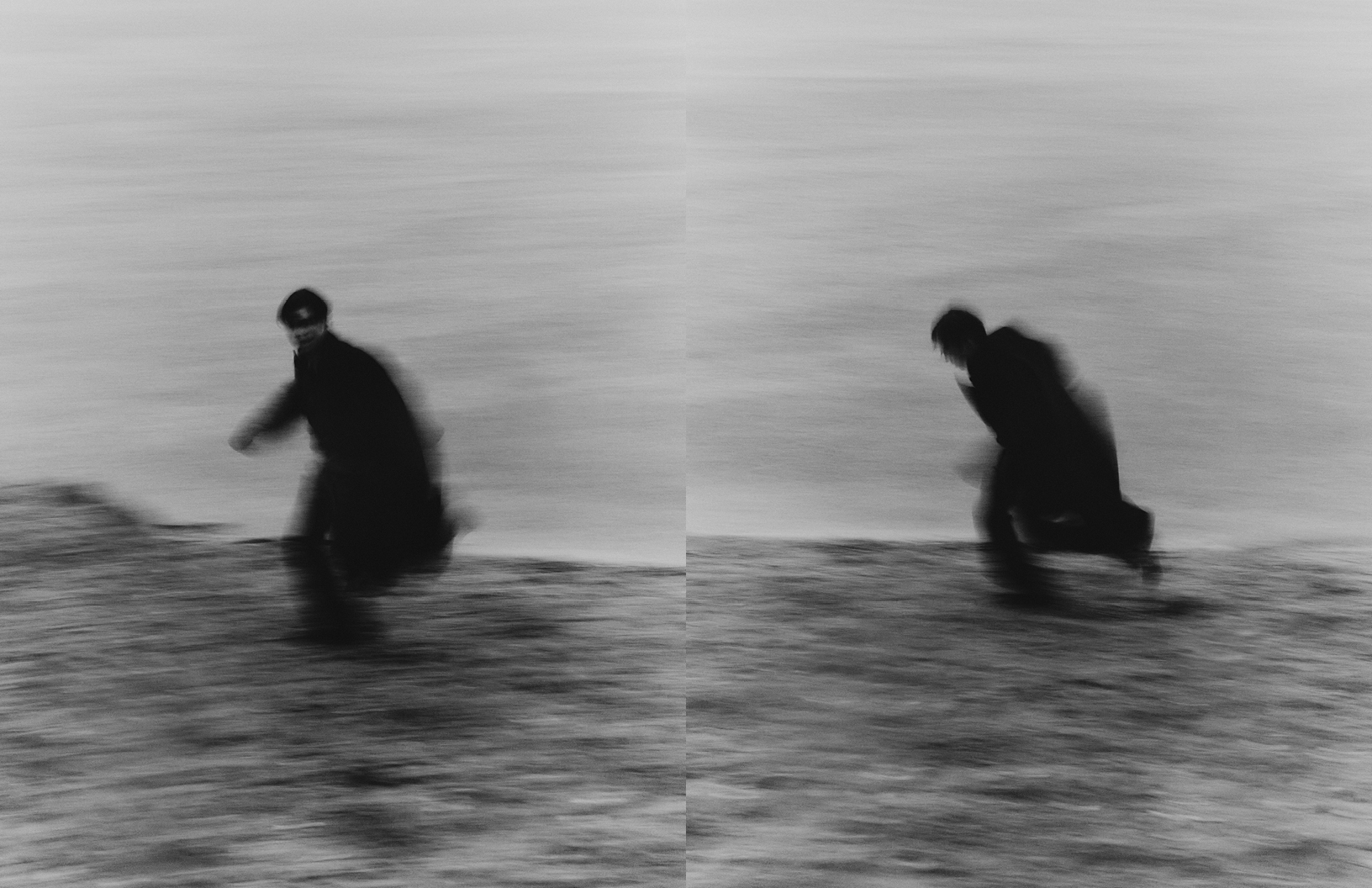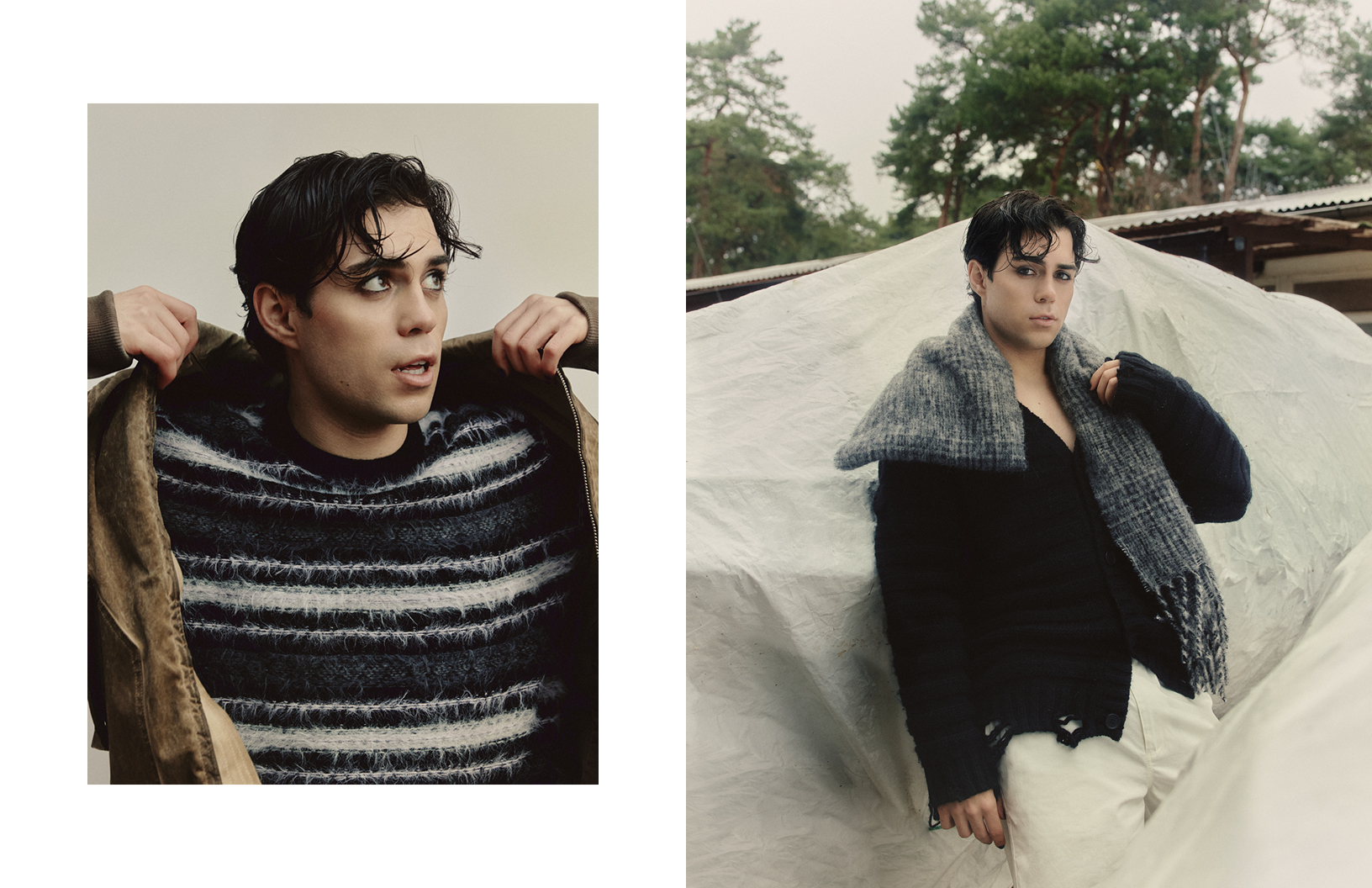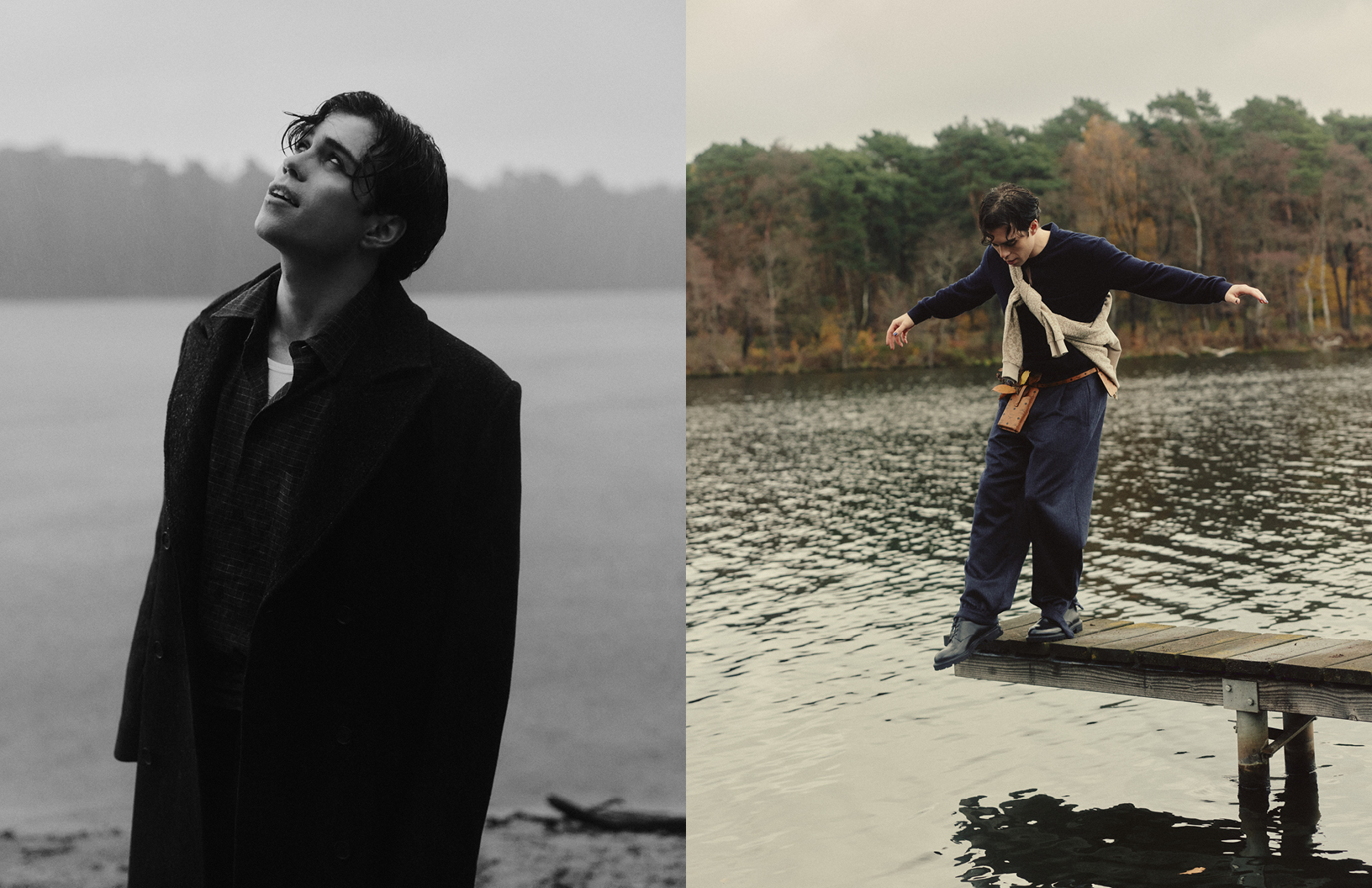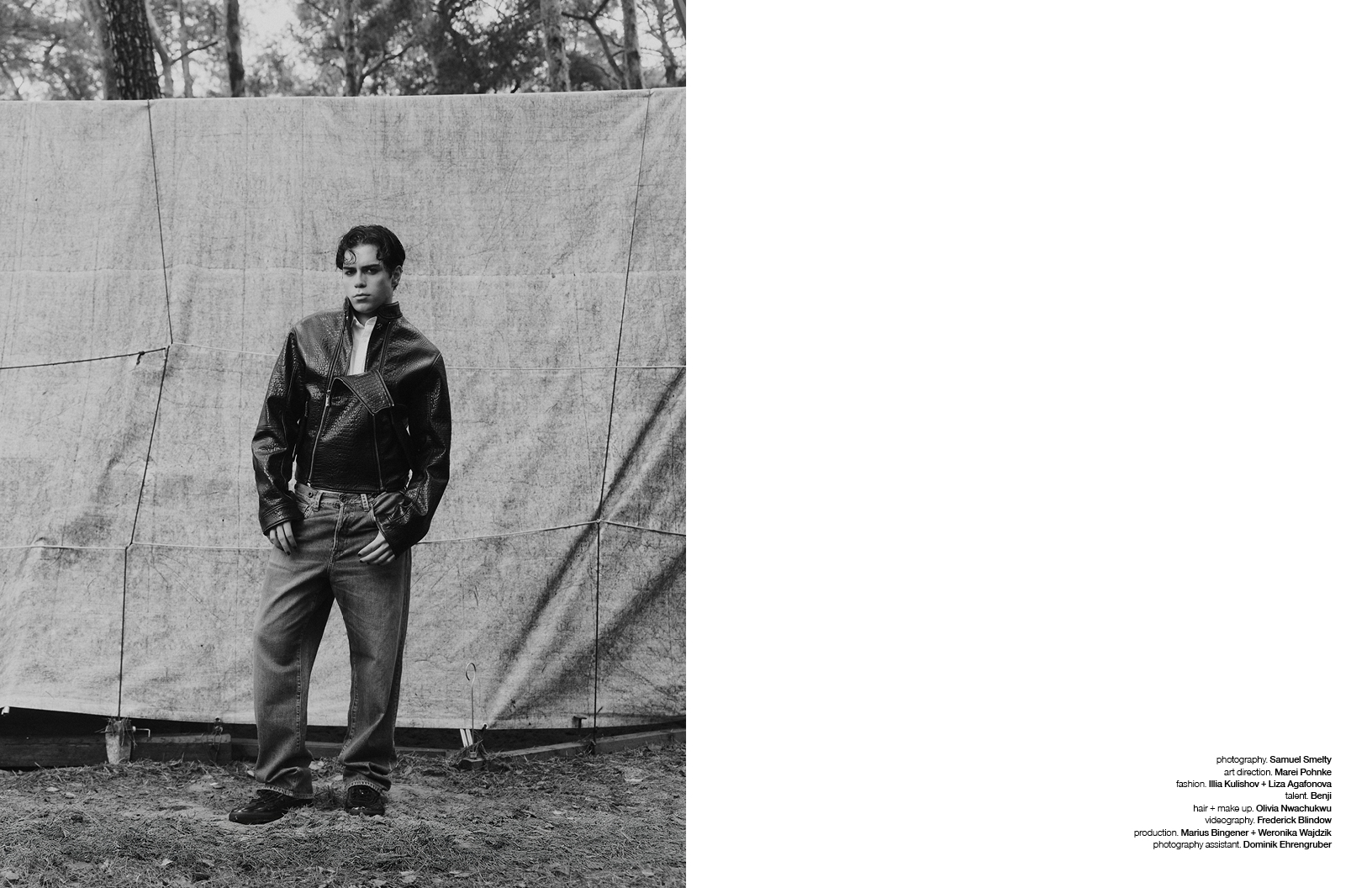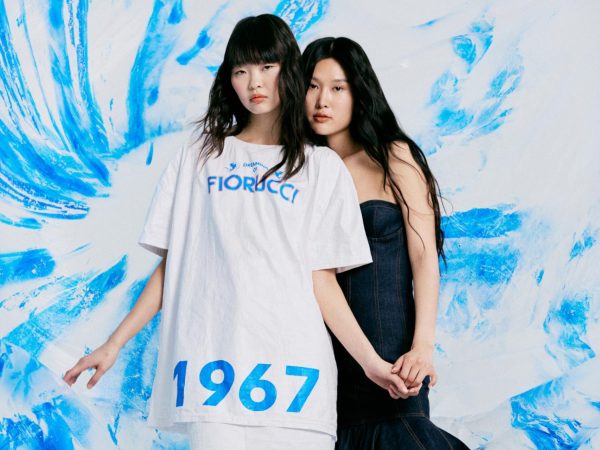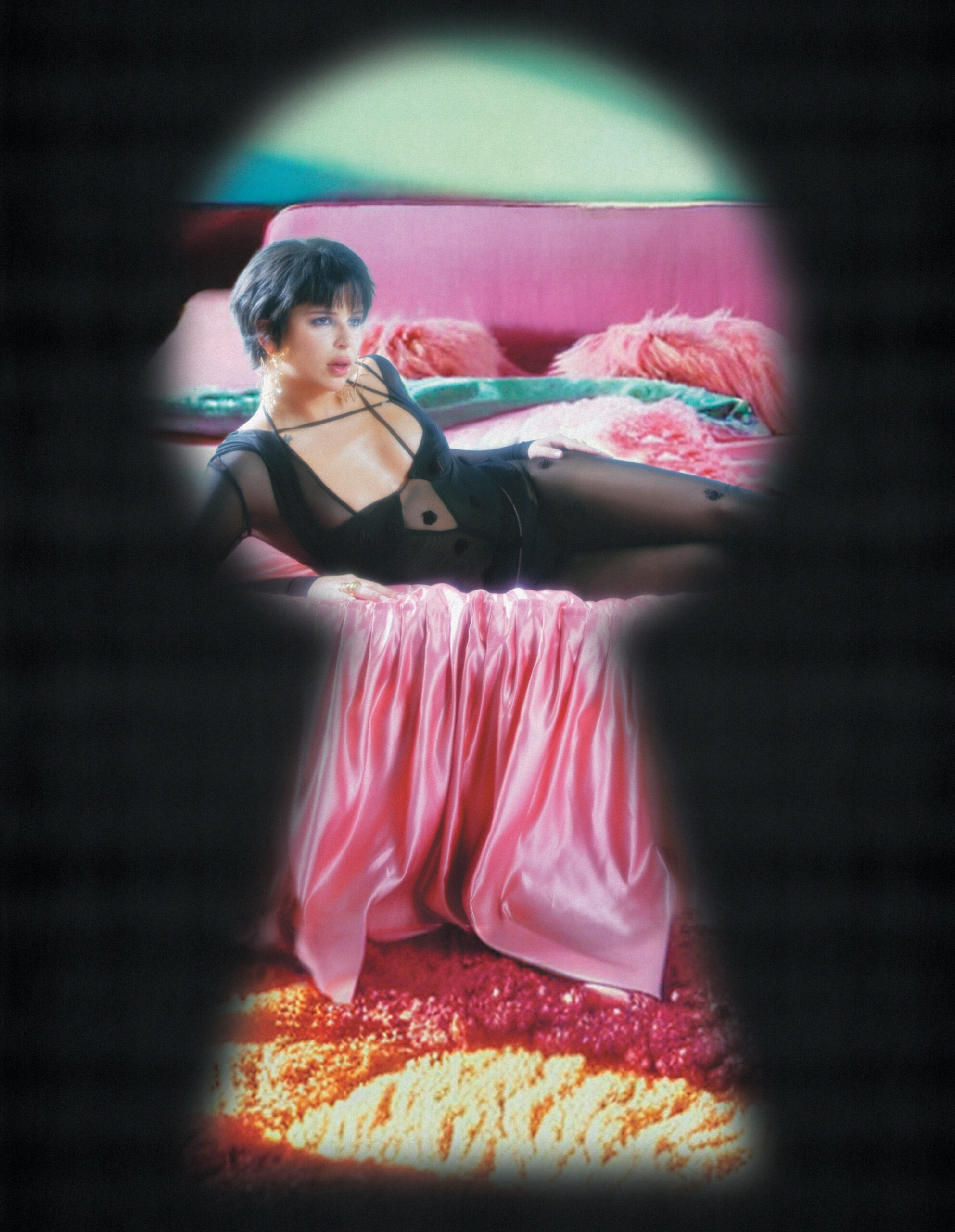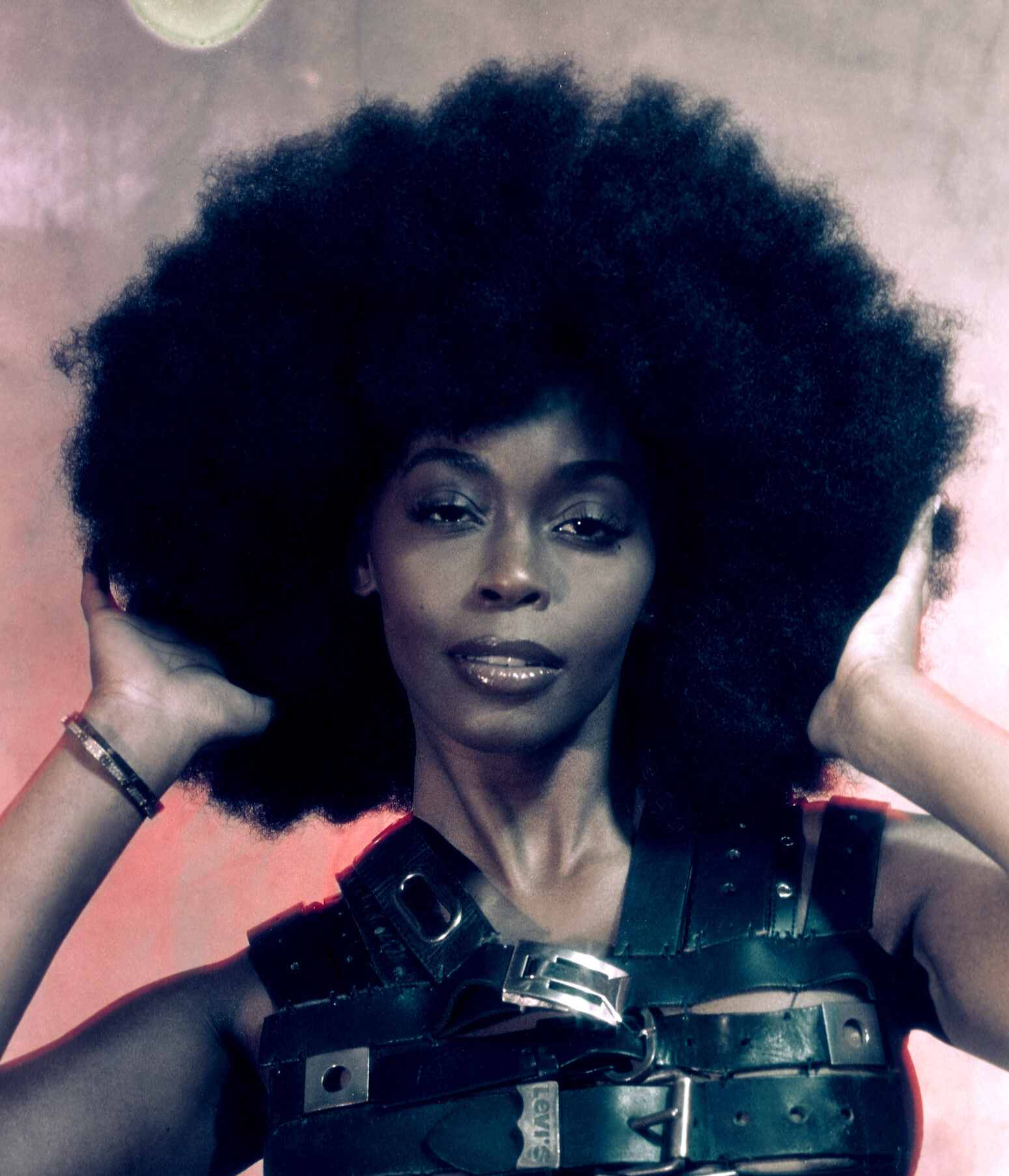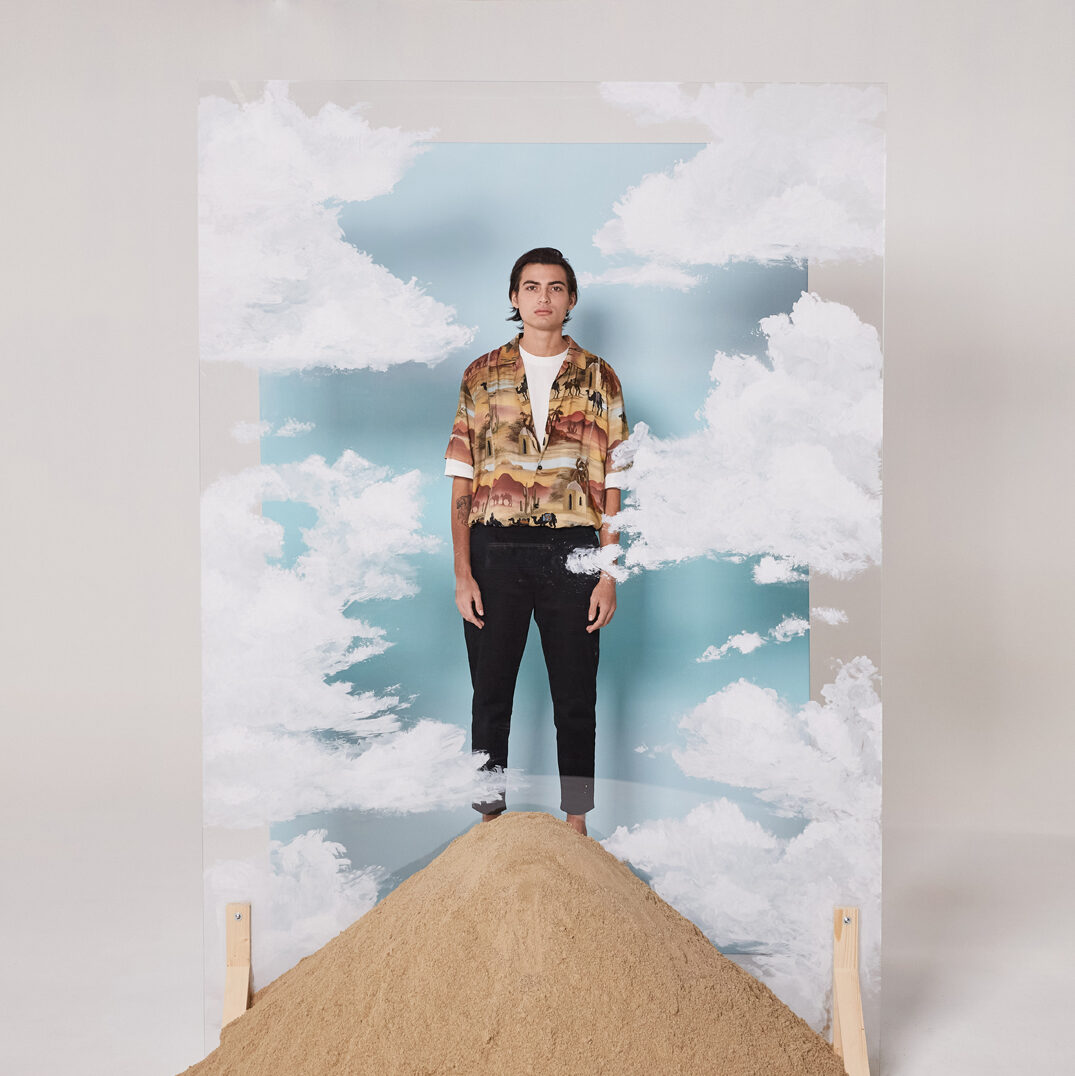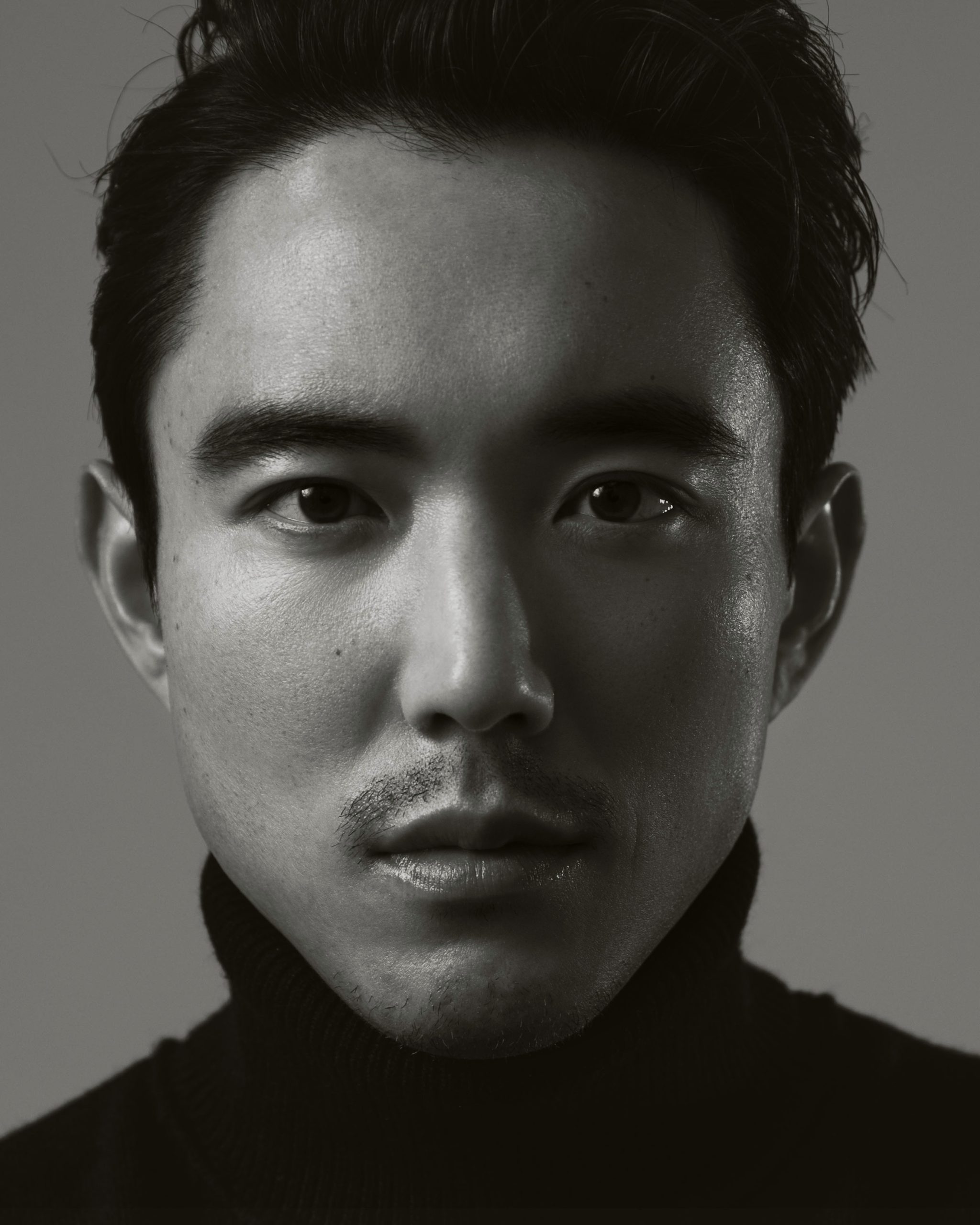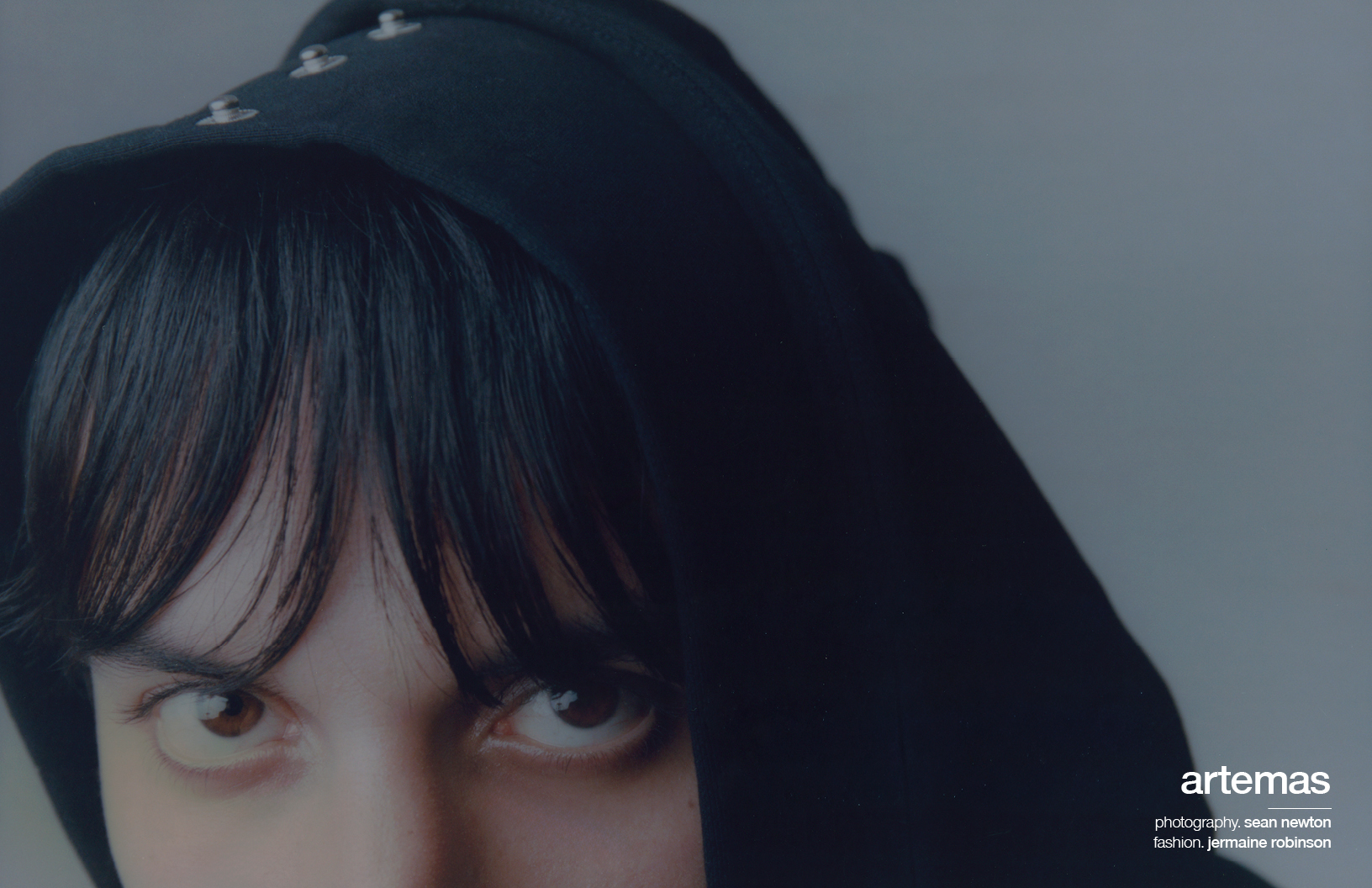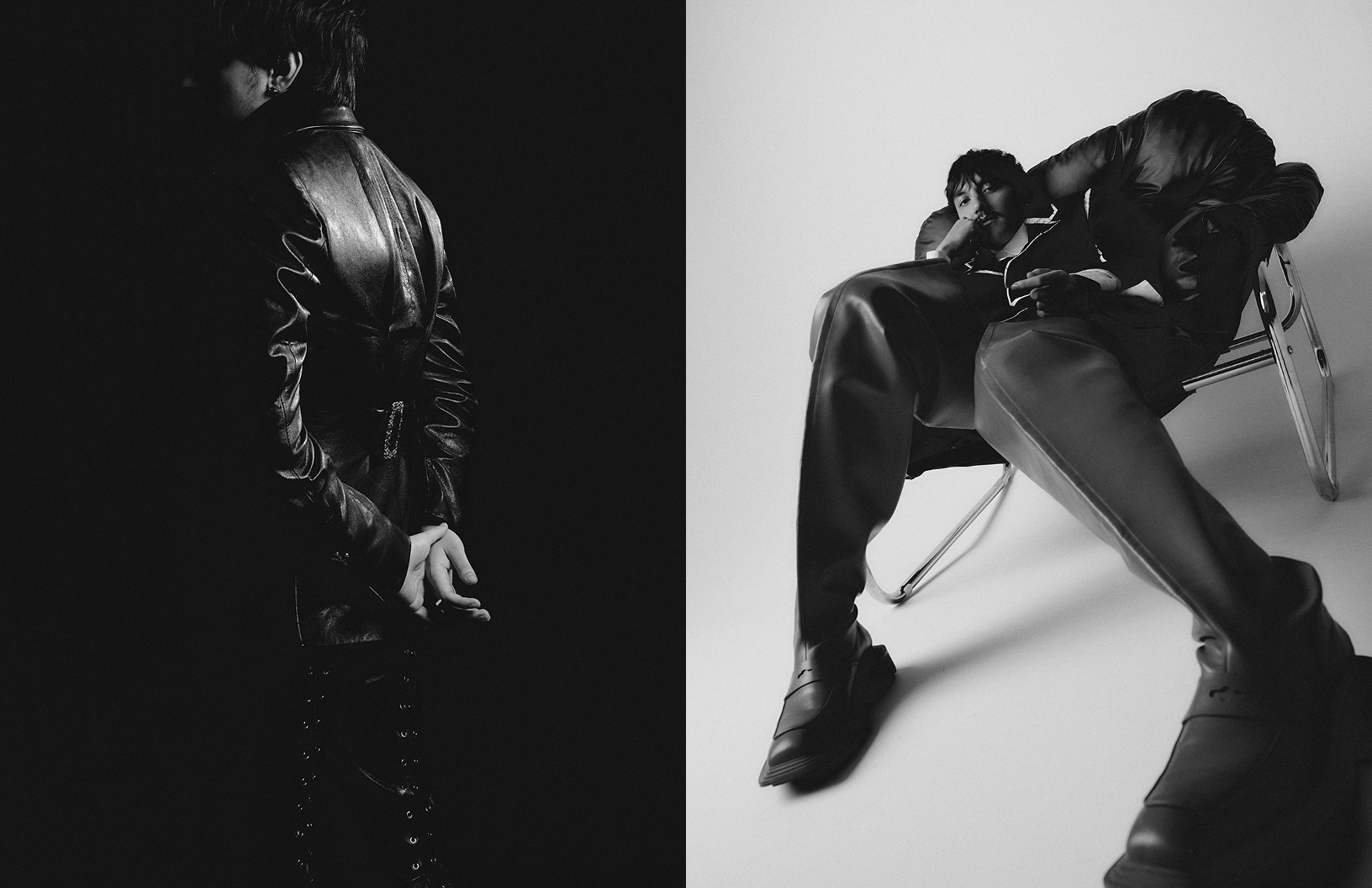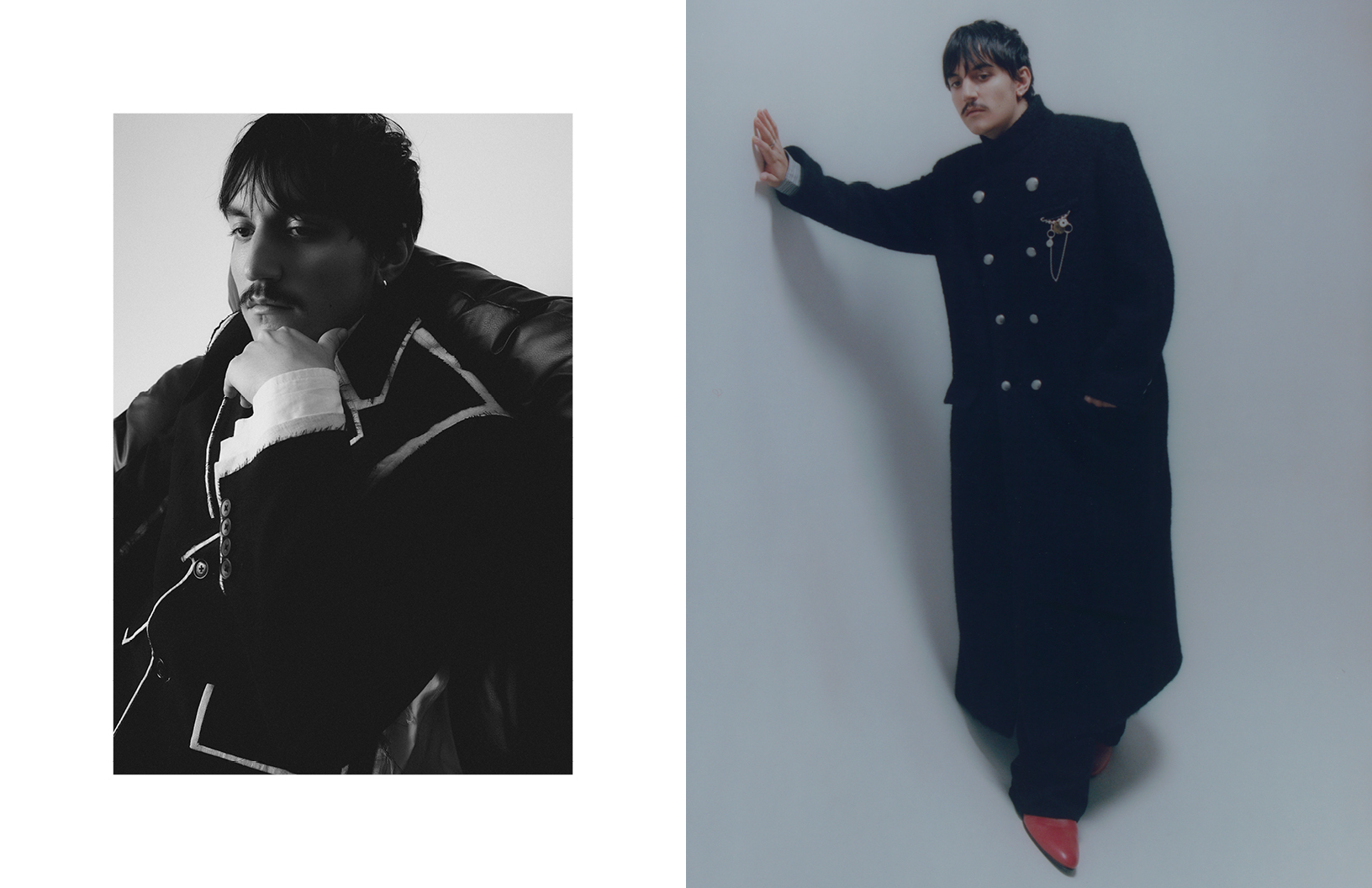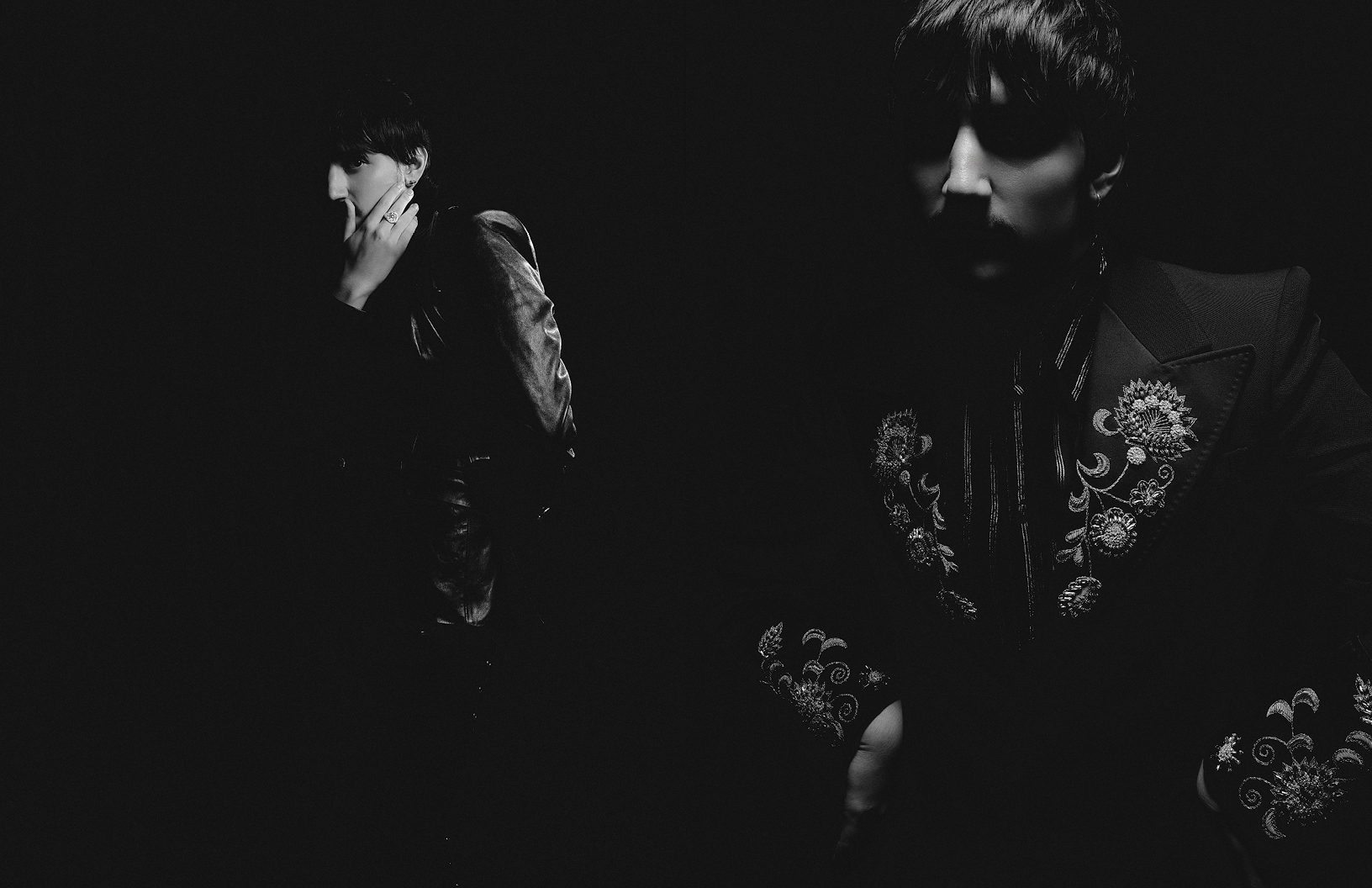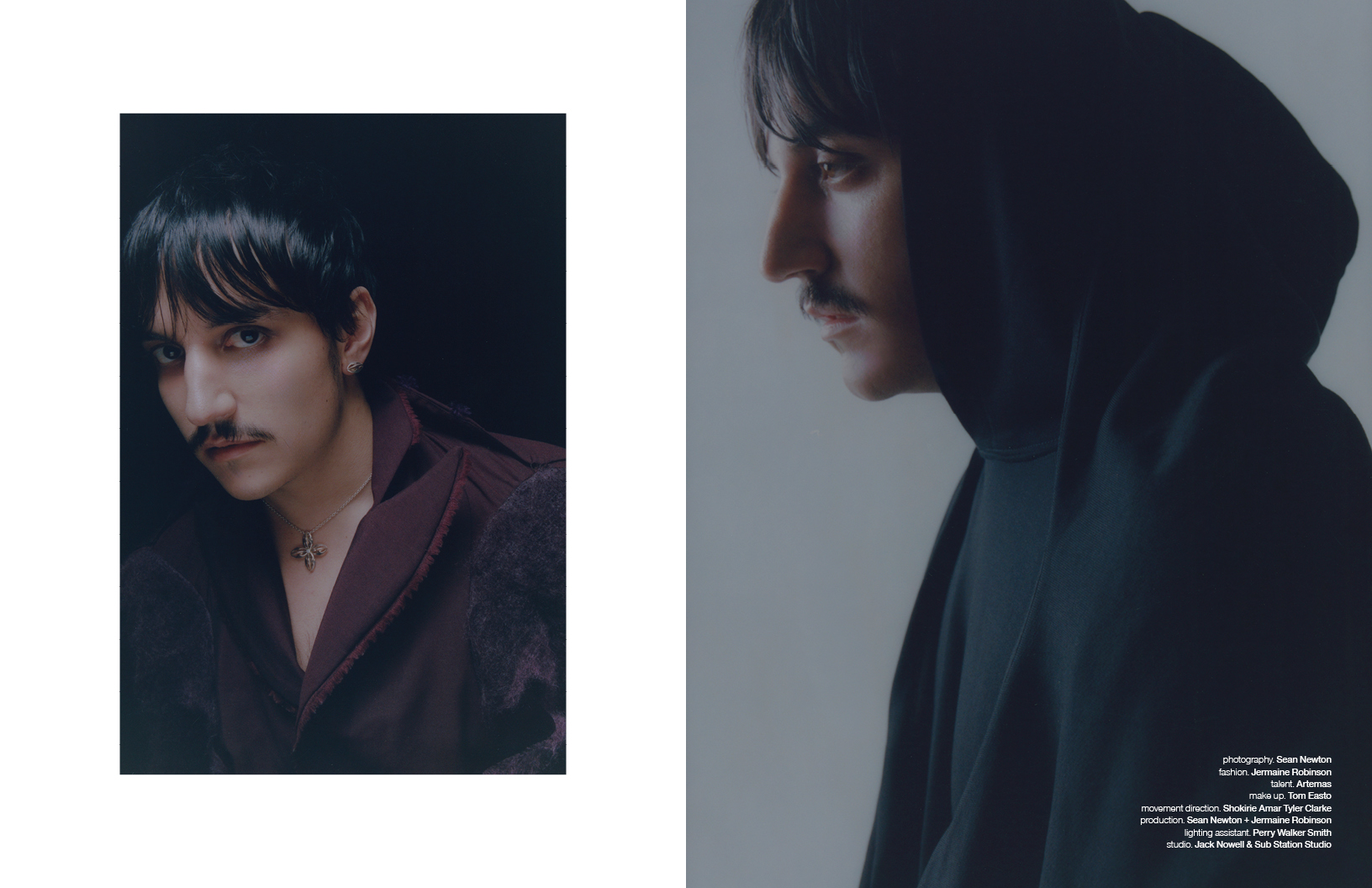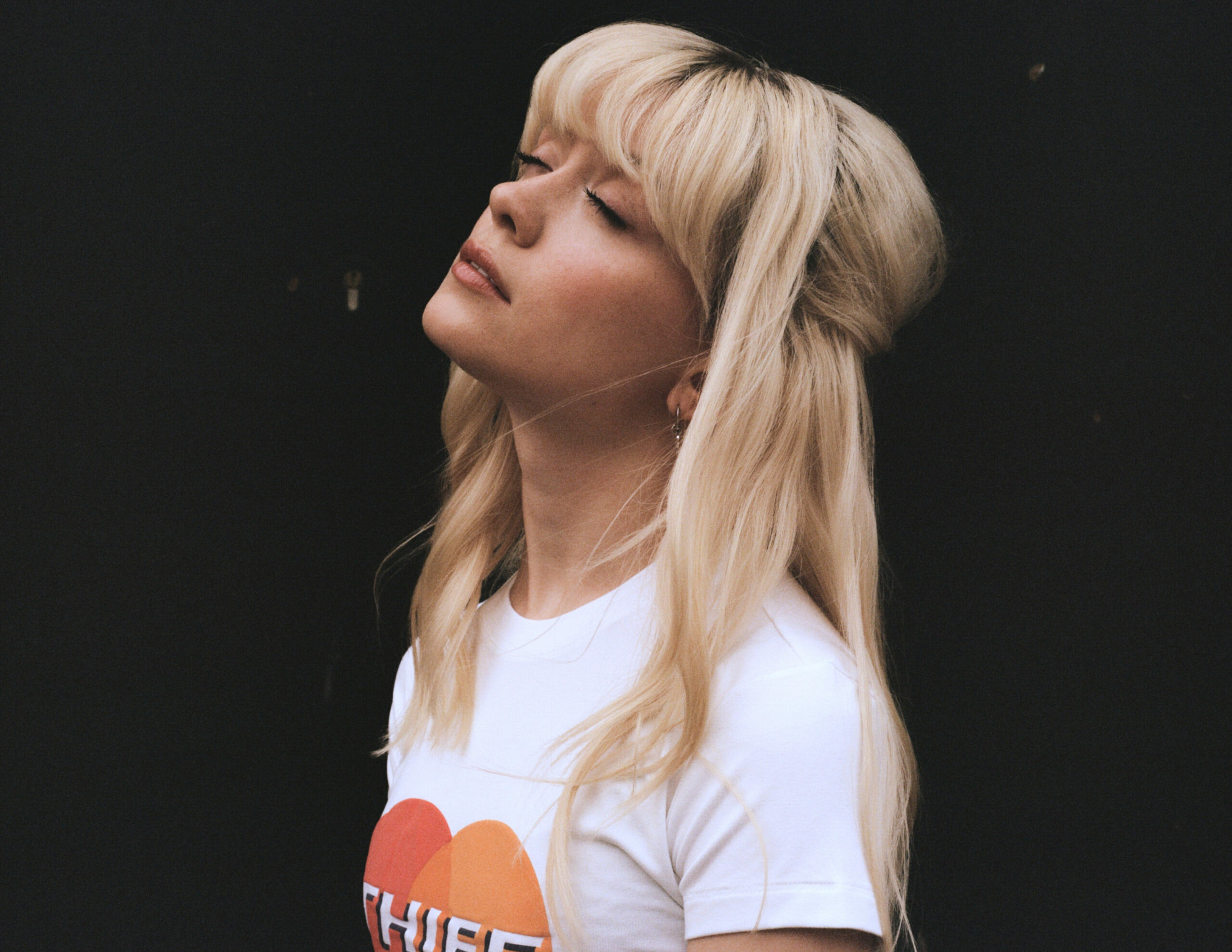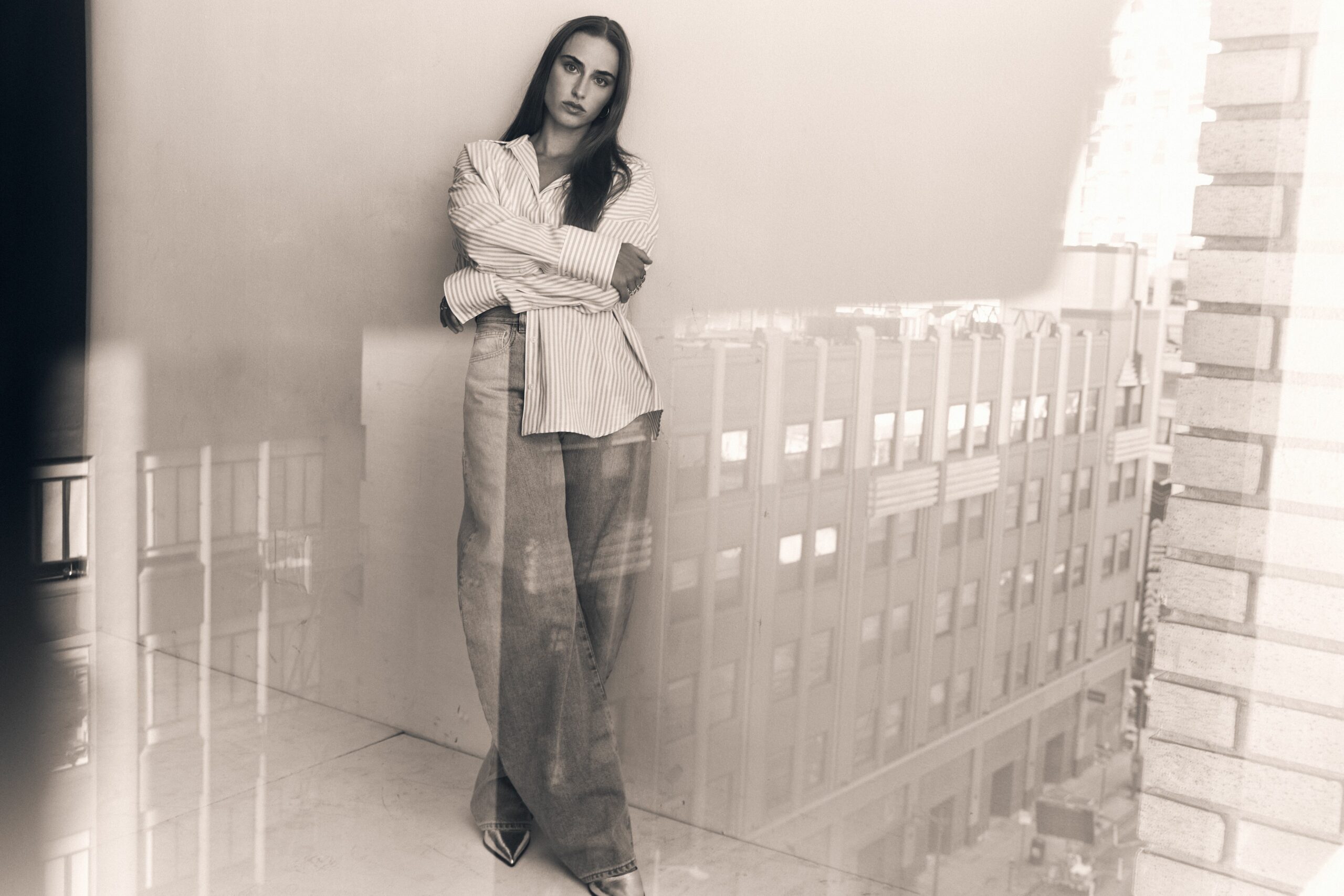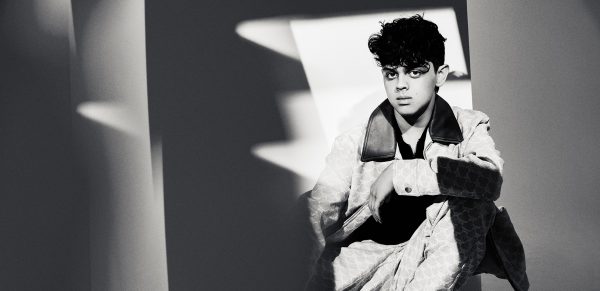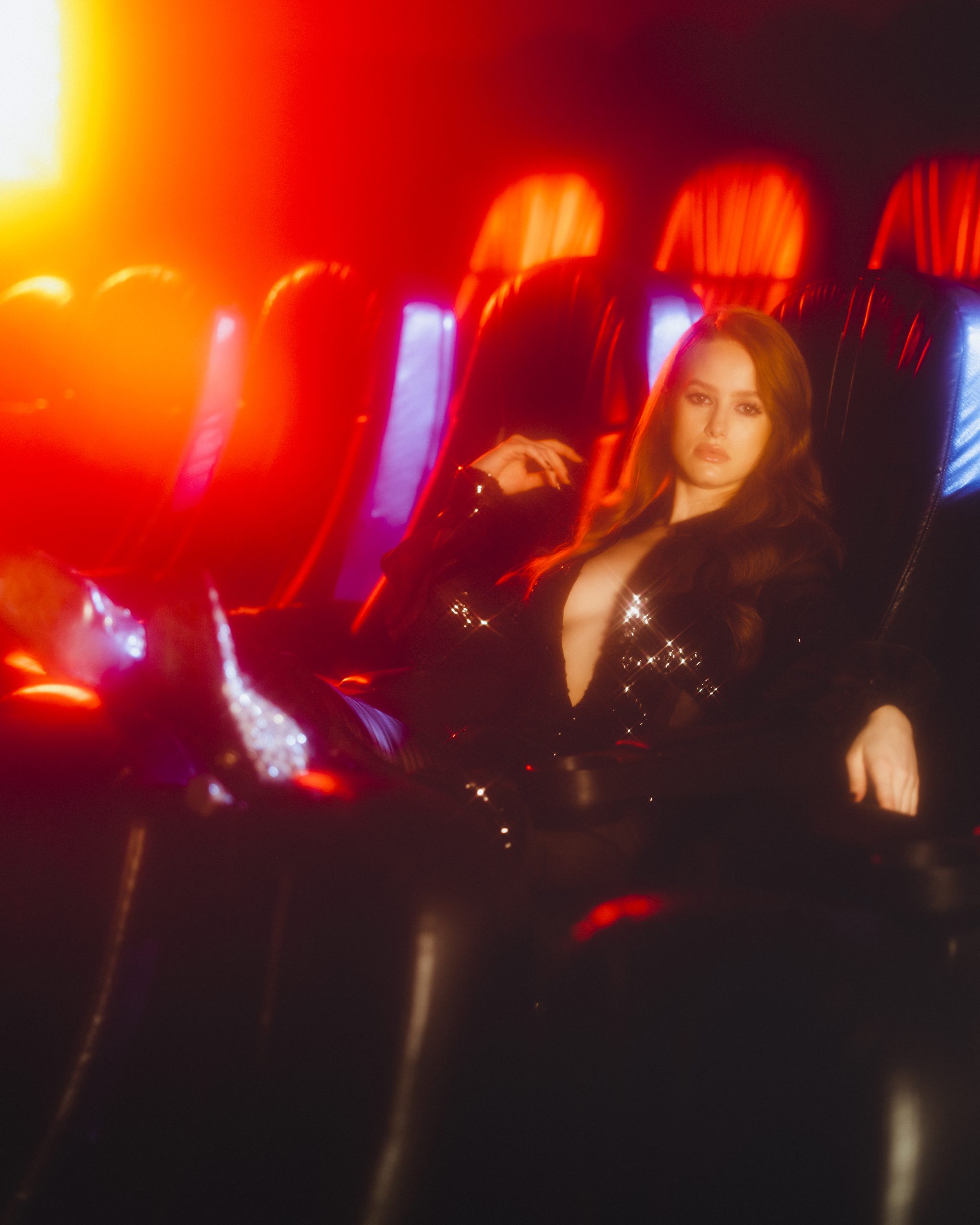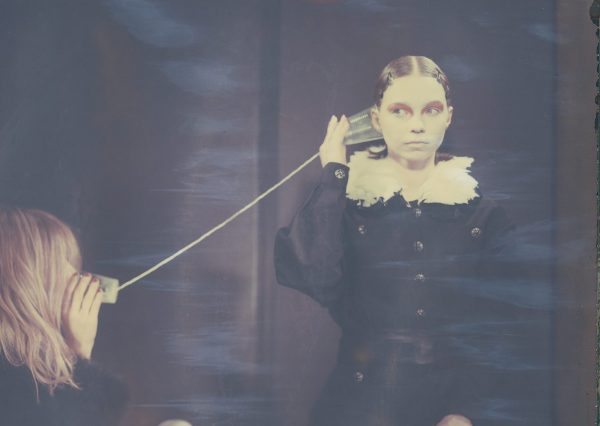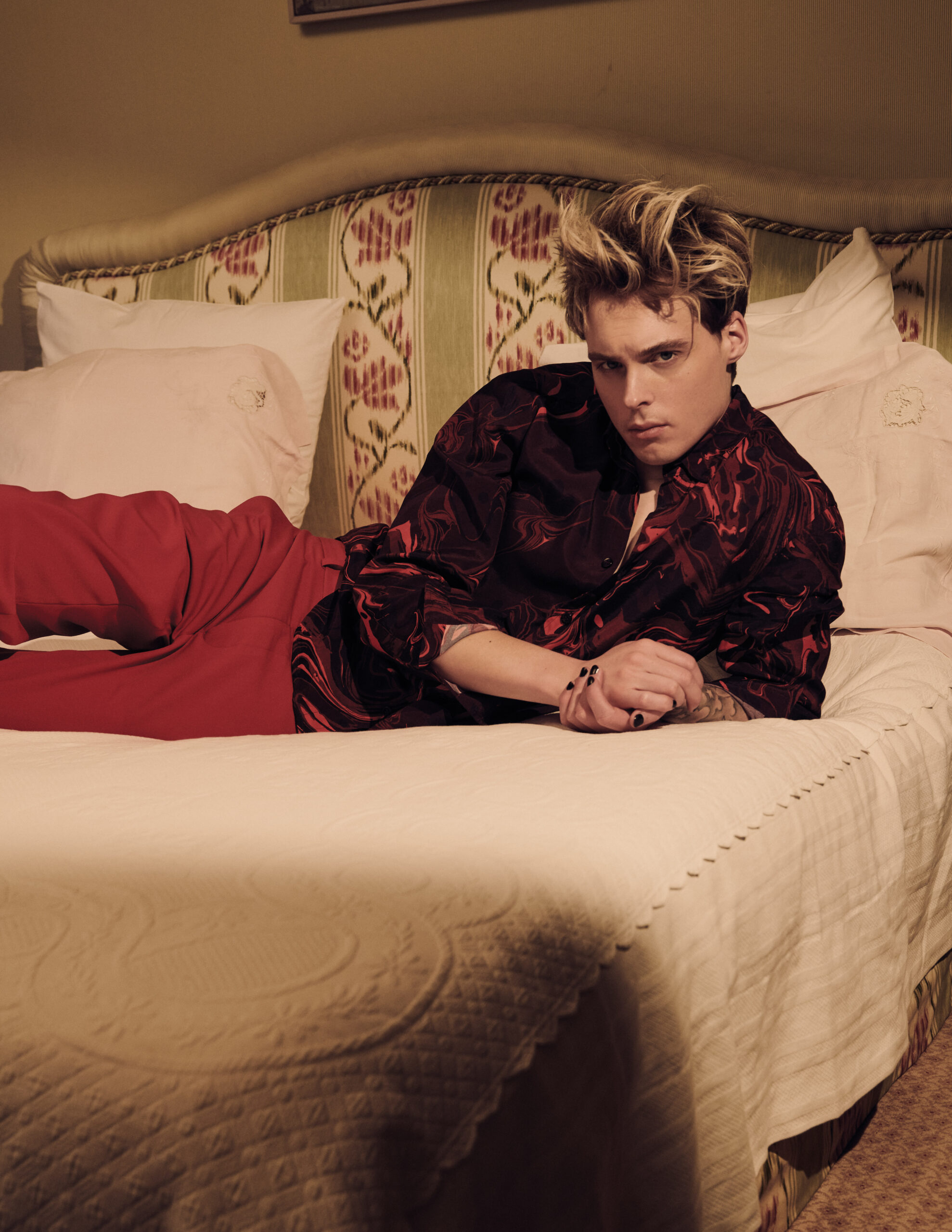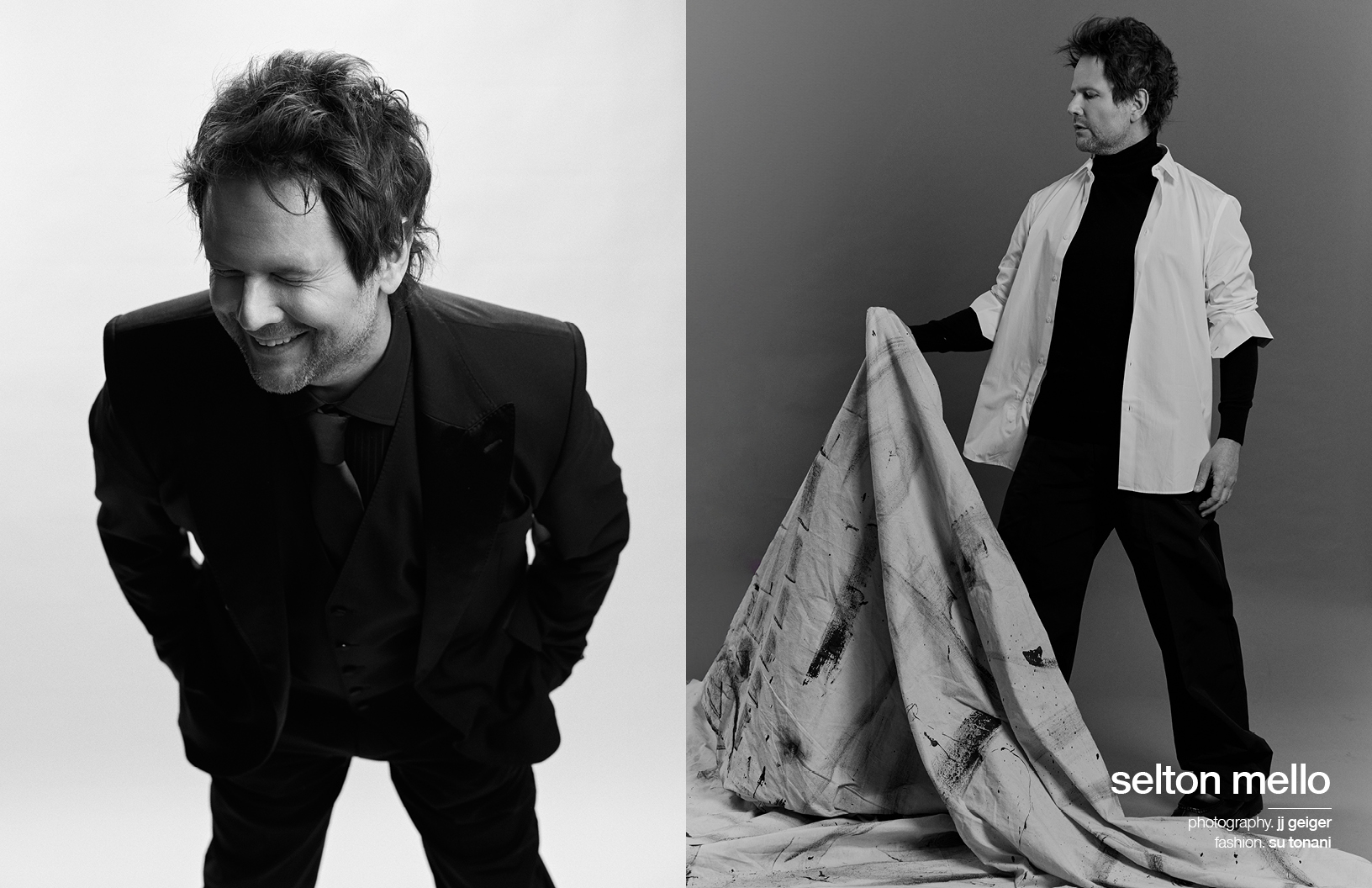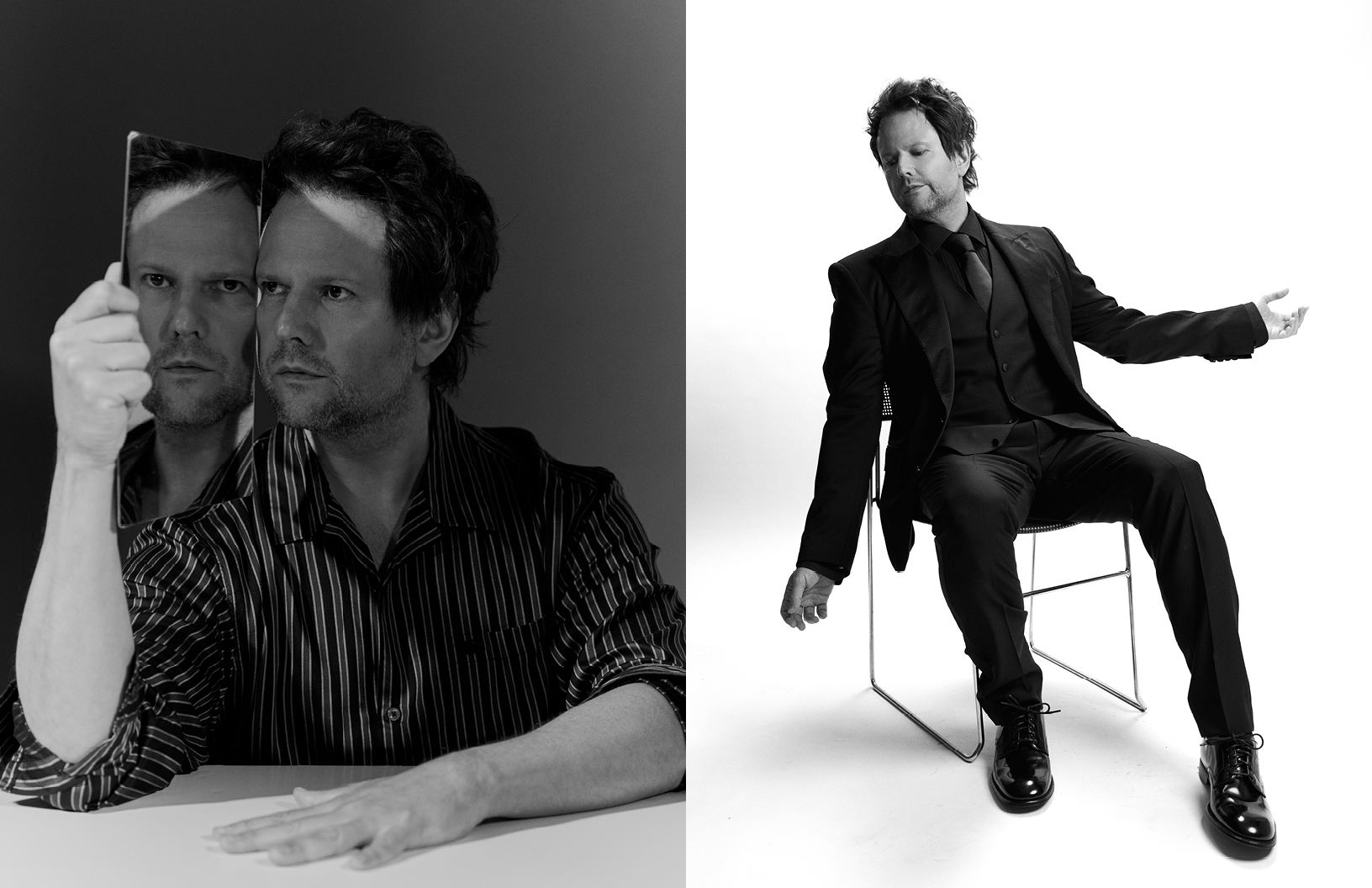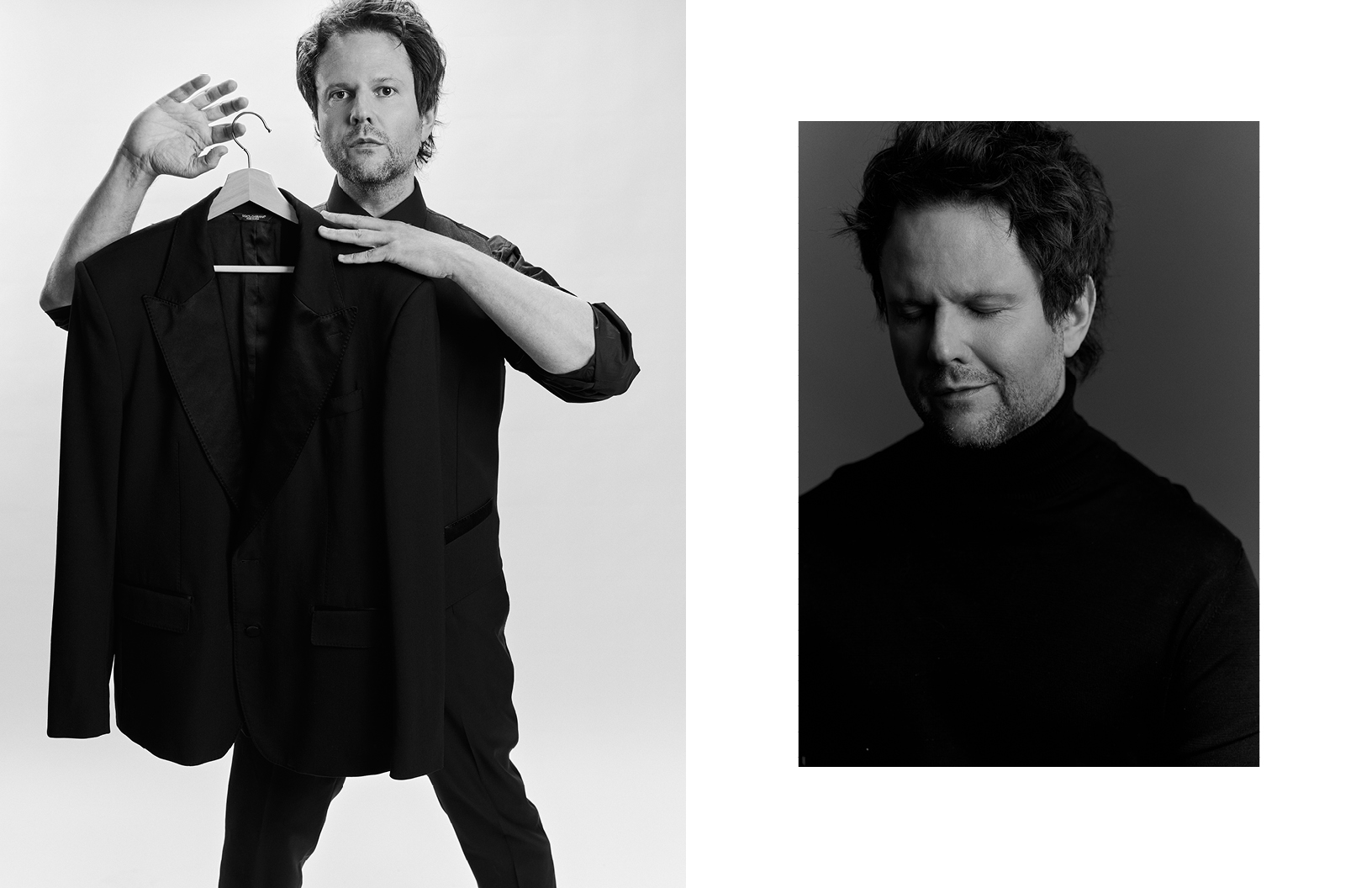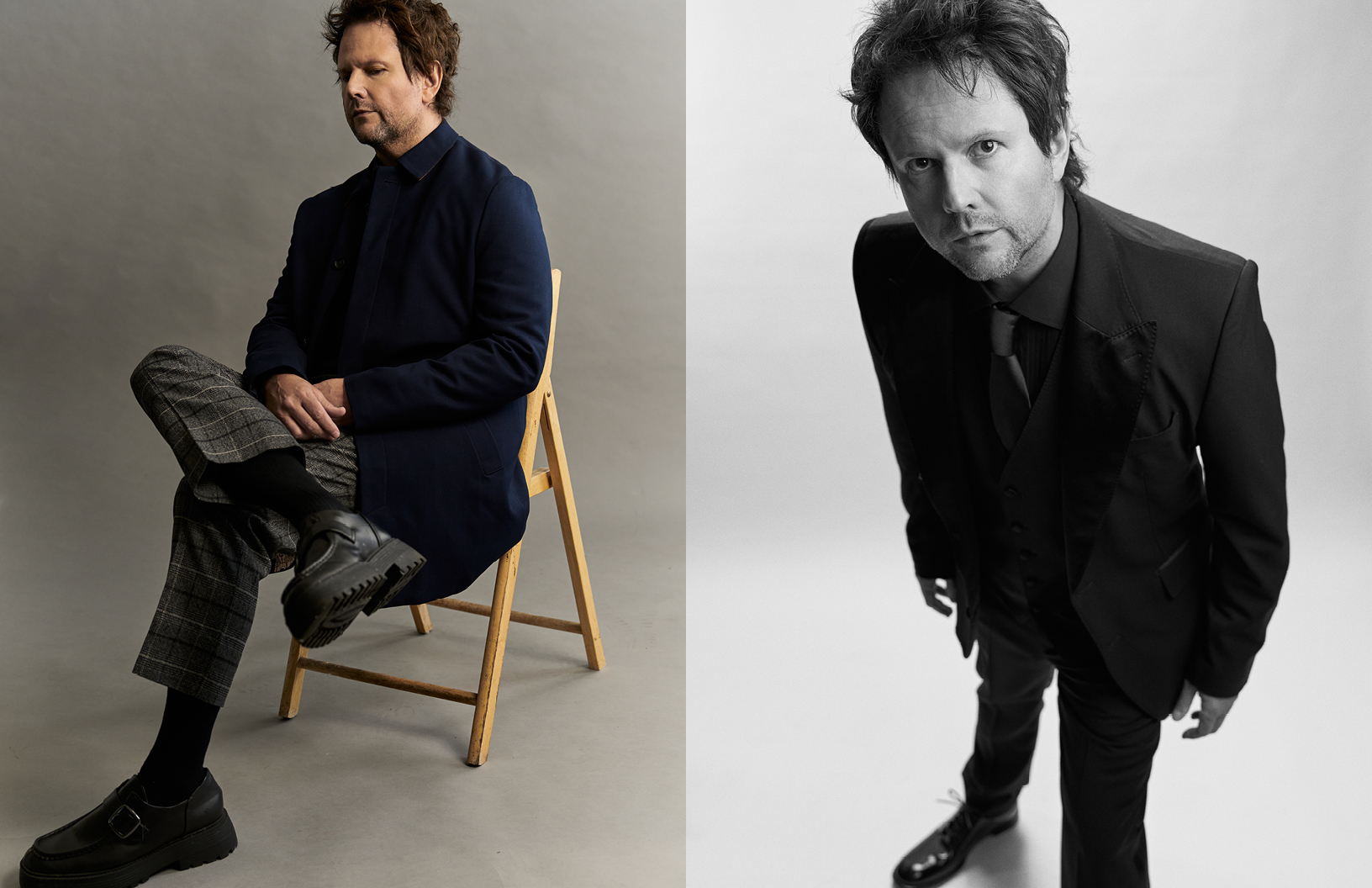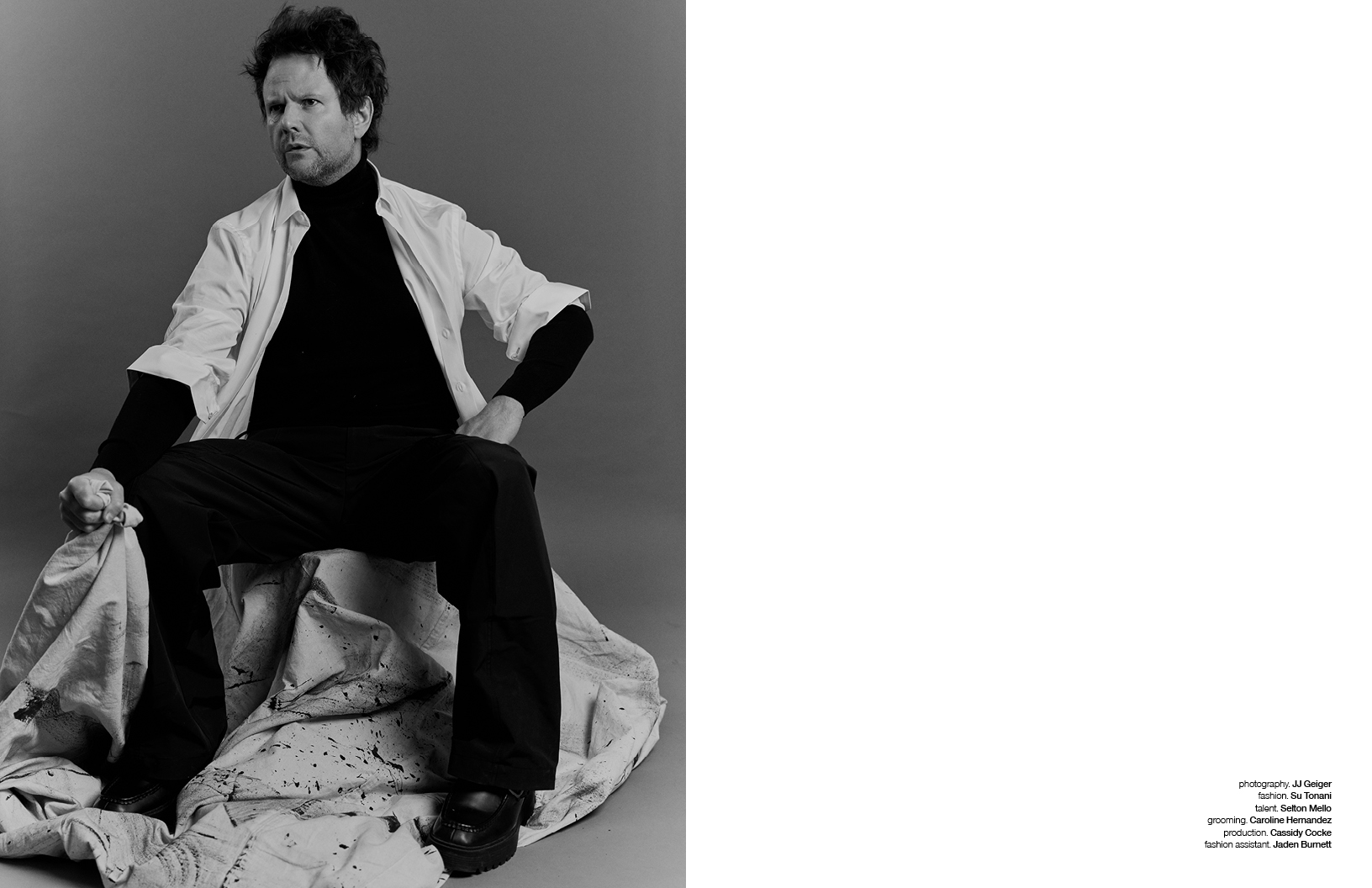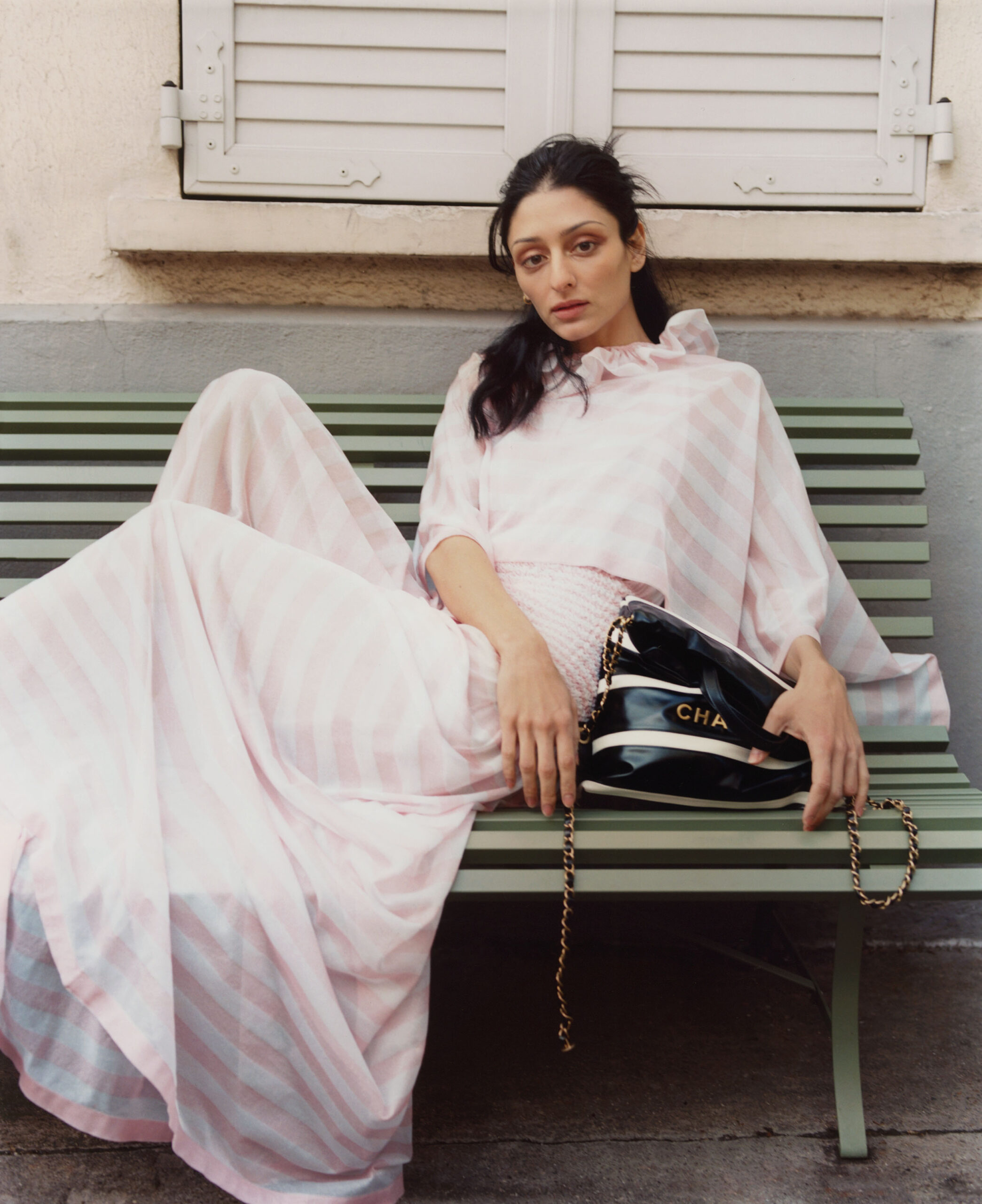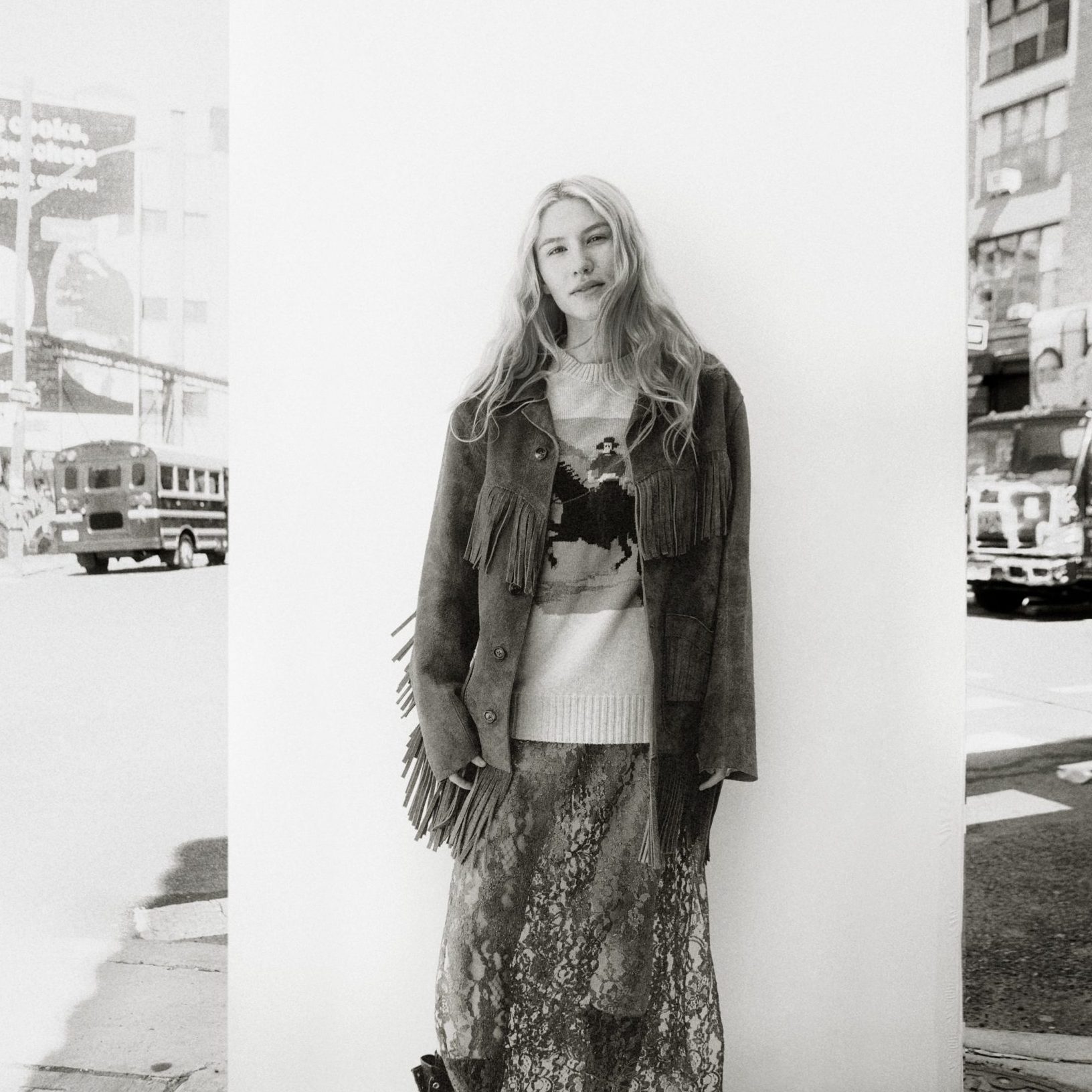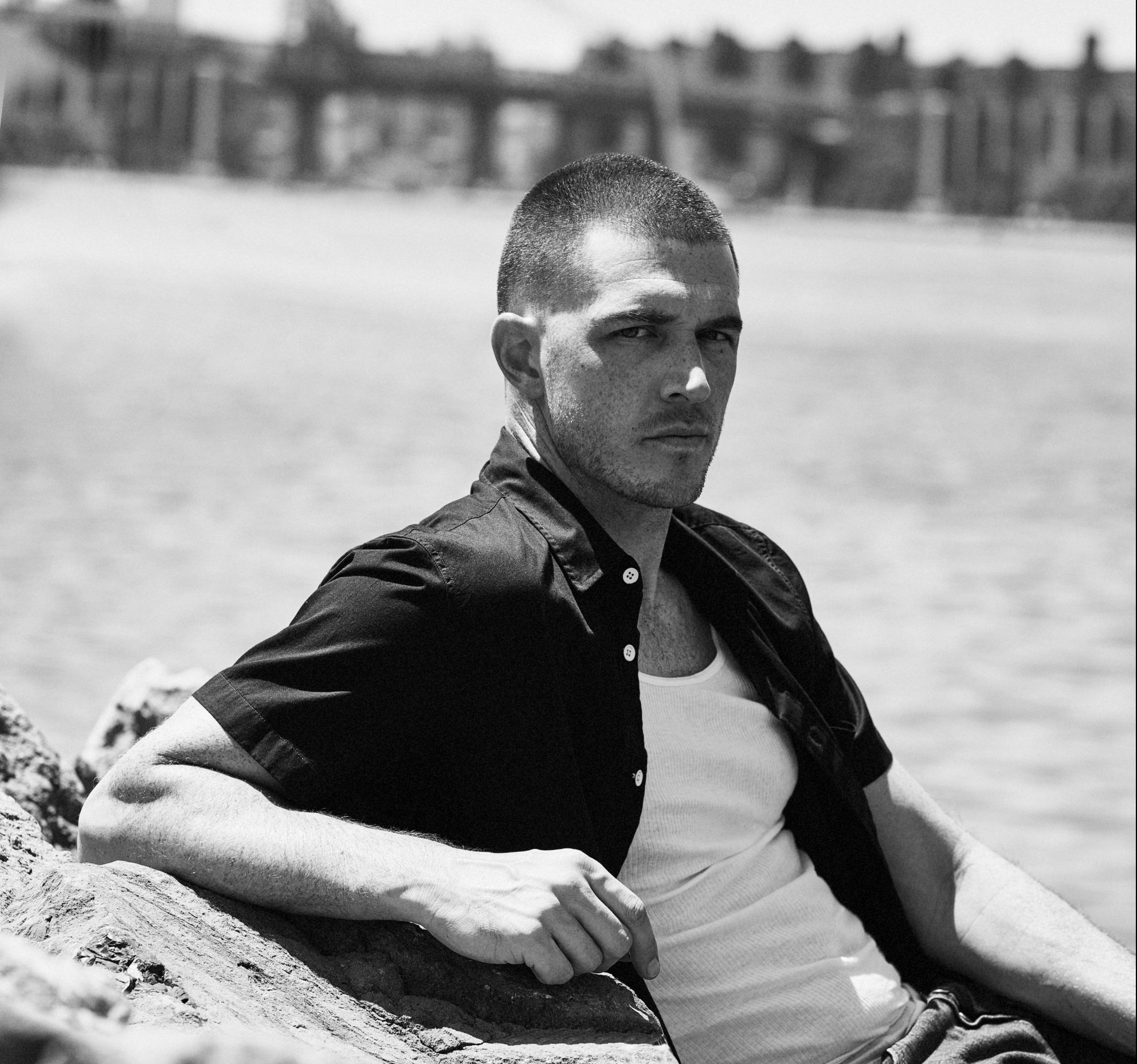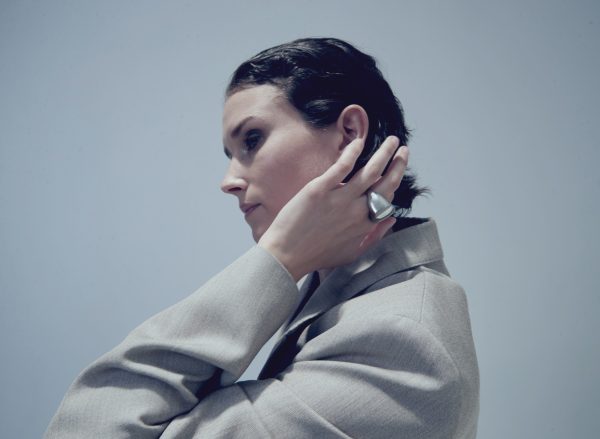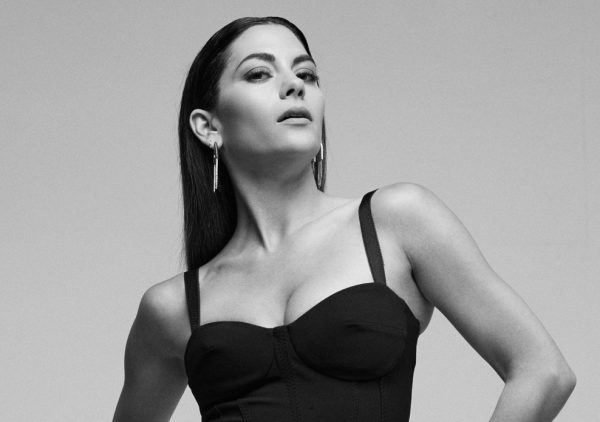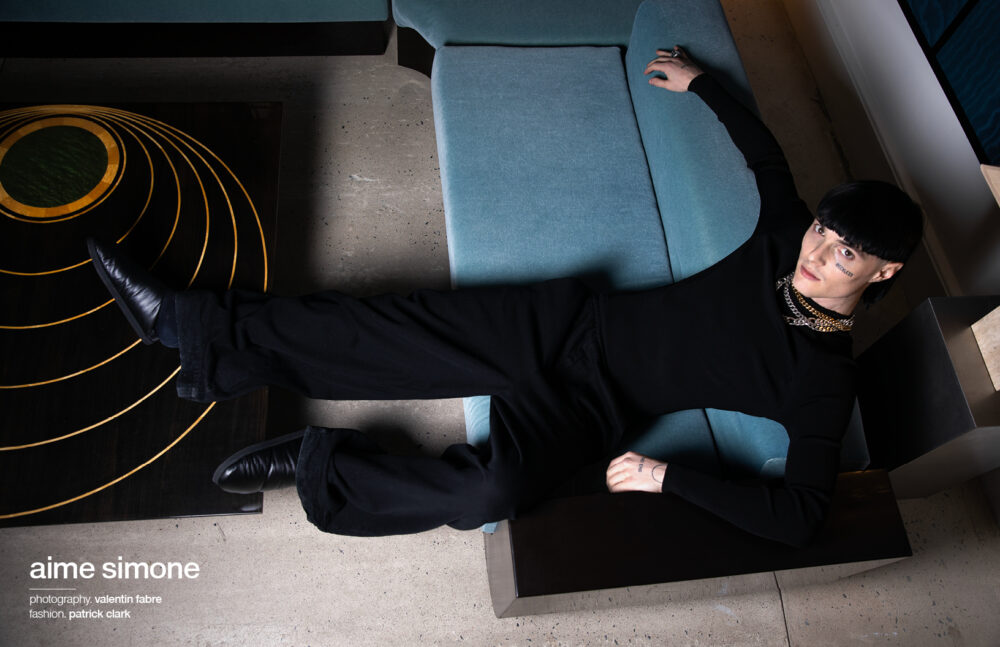
top. Dries Van Noten
trousers. MM6 Maison Margiela
shoes. Moncler
gold chain. In Gold We Trust
silver chains + ring. Talent’s Own
Light and darkness coexist in Aime Simone’s work. Teasing out the intricacies of what really lies behind a chiaroscuro, the French-Norwegian singer-songwriter, artist and producer sings narratives from his life. He has multiple life chapters stacked up, and is here to sing about them with a sense of catharsis and atonement. Starting out as a protégé of Pete Doherty and Hedi Slimane, Aime Simone released his first record Say Yes, Say No in 2020. He considers it to be a mixtape, one which was written and recorded in three months . Three years on, Aime Simone has just released Oh Glory, which he considers his first album. With its melodic pop, indie, grunge and trap rap hints (a fusion of styles he calls post-pop), Oh Glory is a journey, both figurative and literal, through Aime Simone’s many homes. Moody literary characters meet with a rap aesthetic, with references that range from post-sovietic Tumblr vibes to Paris’ Belle Époque. Aime Simone speaks to Schön! to reveal some of the sources of his writing – vital energies such as love, catharsis, finding freedom and writing for change.
What was the inspiration behind the title of your new album – Oh Glory?
Depending on the song you listen to, the title has a different resonance. On some songs it’s very first degree, it talks about the idea of success, and managing to achieve something. What you define as a success has different levels of meaning – for me it means having a family, being able to make music, to live from making music.
Sometimes, it was more secondary: something you’re close to but can’t quite reach. I’m so close, yet so far – like a poet gazing to the sky, searching. I love that sense of wondering.
You’ve travelled extensively during your life – Norway, LA, Vienna, Berlin, now back to Paris – how would you define the geography of the album?
I feel like the geography of the album cannot be untangled – it’s hard to know where it’s from, it’s blurry. I haven’t only travelled to those places, I really lived there. Living in a place for 2, 3 years you get a sense of the culture. I was always introduced by someone that was from there to the place – I entered into the culture, the music, the people, the space, through a relation, someone I knew.
Norway is my origins, I have family in Norway. Then I travelled to LA, I lived there for a while, I lived in Vienna, and then I moved to Berlin. I was born in Paris. I think you feel all of those places on the album, somehow.
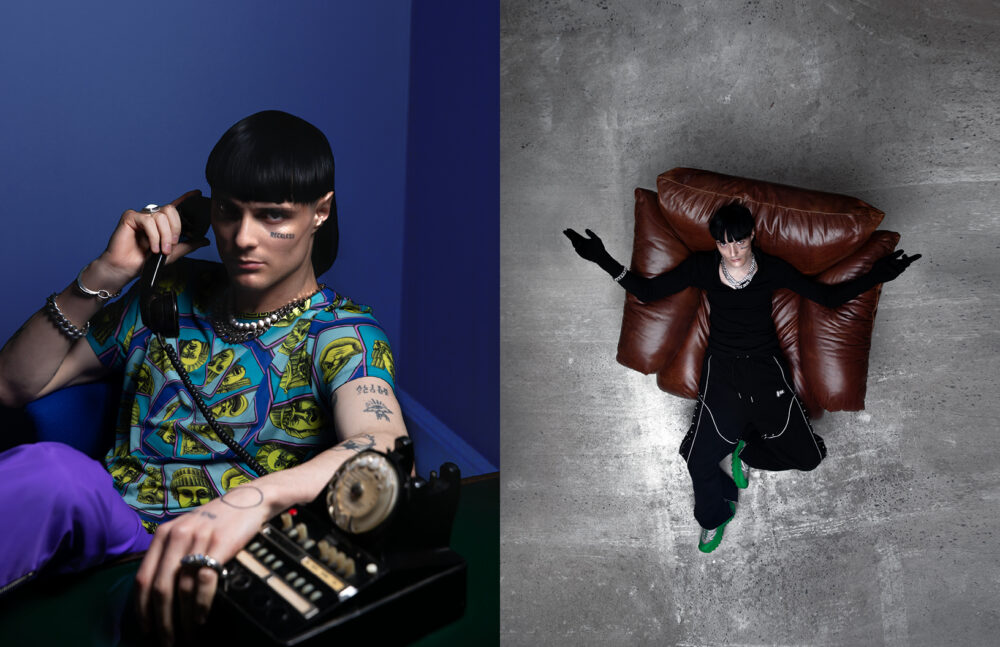
Left
top. Versace
trousers. Moncler
bracelets + rings. Tant D’Avenir
pearl necklace. In Gold We Trust
chains. Talent’s Own
Right
top. KUSIKOHC
trousers. 8IGB
shoes. Moncler
bracelet. Tant D’Avenir
chains. Talent’s Own
On the album, which of these spaces do you feel resonate specifically?
I think the transition between Berlin and Paris. It’s an album that really captures this transition, from being in Berlin – being innocent, full of hope and dreams, and somehow a bit naive about the world, and moving to Paris, where I was exposed to the industry, and the COVID pandemic, the war in Ukraine: it was a reality check – and having those dreams, those abstract dreams confronted with something very real.
Just like the latest track you released, Give Me Love or Give Me Nothing, there are multiple accounts about love on the album – self-love, self-discovery, loving special people – is this a pivotal theme?
It can sound corny of course, but it’s one of the main sources of energy in the universe. Love is the only thing that is really important to me because it’s the only thing that managed to get me out of a really dark place. Nothing else did that for me – medicine, job, money – none of those, just pure love, and time spent with the person you love. it’s the roots of everything, it’s always there and always what I’m looking for. To spread that light is what can actually help people in doing what they need to do, to live well.
Again, this album is not just about love – it has this whole thing of fighting for what you love, for who you love. There’s a warrior aspect – you’re going to fight for the people you love, because this world is quite destructive and toxic. This world separates people.
You’ll have to fight to be able to create the conditions that allow you to exist and be close to each other. That’s something we’re able to do with Sonja [Fix] – we just do music together. I want us to be together every day, to be able to do what we love. That is freedom.
Is there a process of catharsis in your music?
From the very early stages of writing a song, there’s always this feeling of tapping into something emotional, truthful – I always feel like I’m transcending, like I’m not really there. I’m not that spiritual, but with music there are things that really slap me in the face – and force me into a spirituality – it’s just a feeling. It’s stronger than you.
Never Far is a completely spiritual, otherworldly experience; [laughs] my grandmother had passed and she came to visit me one night. I usually don’t believe this stuff – until it happened to me: I was starting to fall asleep, and I had this very physical dream. As if I was in the dream physically. Then I saw my grandma – she was talking, but with my voice – I had crazy sensations in my spine, a wave of love, like when you take MDMA. But I hadn’t taken any drugs in over a year. I recognised her personality, and I was freaking out. The next day, I improvised a song and I essentially didn’t edit it. It was a very holistic approach.
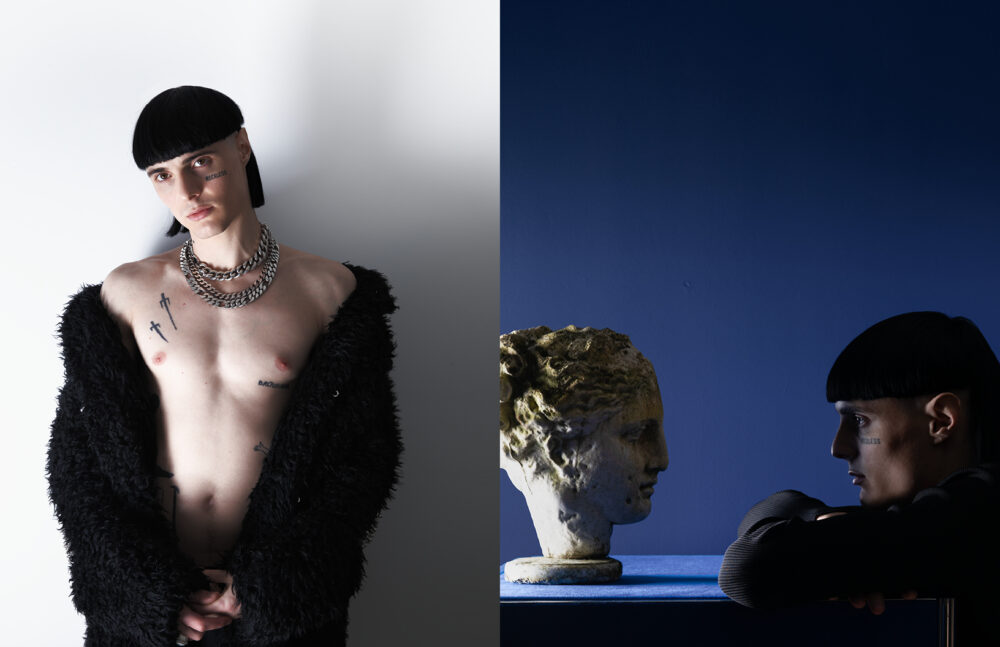
left
coat. 1017 ALYX 9SM
top chain. Tant D’Avenir
chains + ring. Talent’s Own
right
top. Dries Van Noten
You worked with AI technology on your album visuals – how did this come about?
It came from the idea of how music and visuals are consumed today – our conclusion was that they’re mostly consumed on screen. We wanted something that was striking on screen, and generated an image that we’d never seen before. The physical vinyl had to have this aspect too.
We asked friends from Berlin to work with us, we fed this AI technology images of my references, precisely, mathematically. Personal pictures of me, of my life, of stuff I’ve lived in the past three years. It was a precise processing of these documents from my life. We had over 2000 images that came out; one of them was the cover. Sonja edited it, to fit my universe.
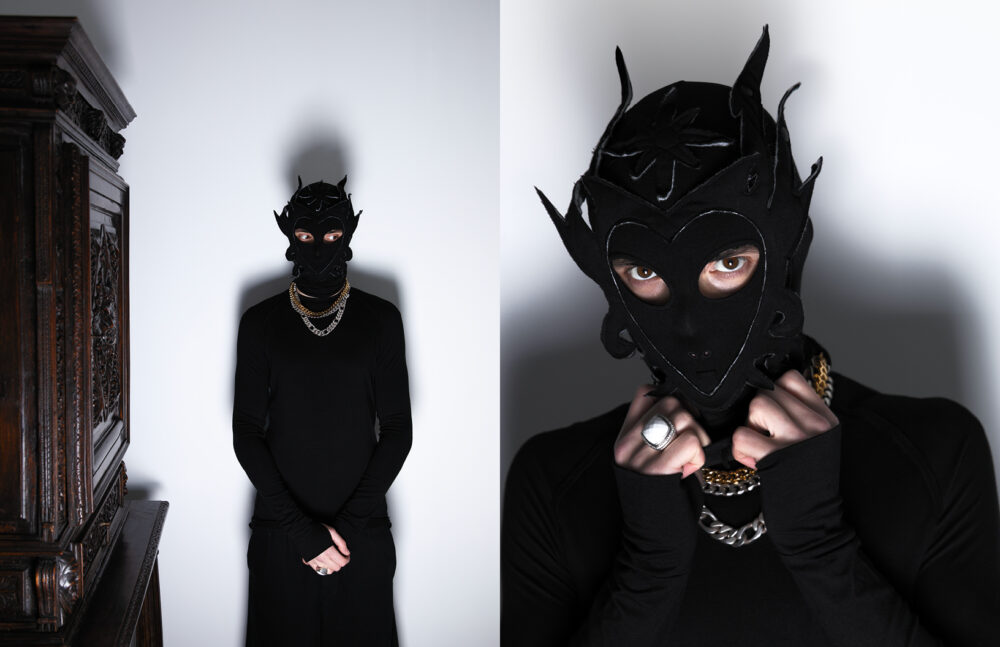
left
top + hood. KUSIKOHC
trousers. Yohji Yamamoto
gold chain. In Gold We Trust
silver chains + ring. Talent’s Own
right
top + hood. KUSIKOHC
gold chain. In Gold We Trust
silver chains + ring. Talent’s Own
Musically, you use the term post-pop – what does it mean for you?
It’s a term that I invented because people kept trying to define my music. Every definition that was coming up for me was wrong, so I invented one. It starts from the basis of songs being written according to a format, namely pop music – and I’m doing my own take on it. So verses, chorus, bridges structures; having hooks and toplines. What I like about pop music is that it’s a very generous form of music. It’s popular, I hate elitism. It’s a craft that everyone can connect to. I love that.
Post comes from the idea of post-genres. I borrow from so many different genres, even within one song – from techno, reggae-ton, trap, so many that the concept of genre itself disappears. There are too many references.
Your lyrics and imagery are full of literary references, of art – like the Caravaggio references..
I love Caravaggio’s idea of balance between light and dark. I love that his canvases have this very dark context, with the light that comes out of it – just this very intense light. It’s not a real light, as if the characters exude the light themselves. I really like this approach. Not denying the darkness of life, but always going towards the light – that is always blinding you with emotional, strength, will.
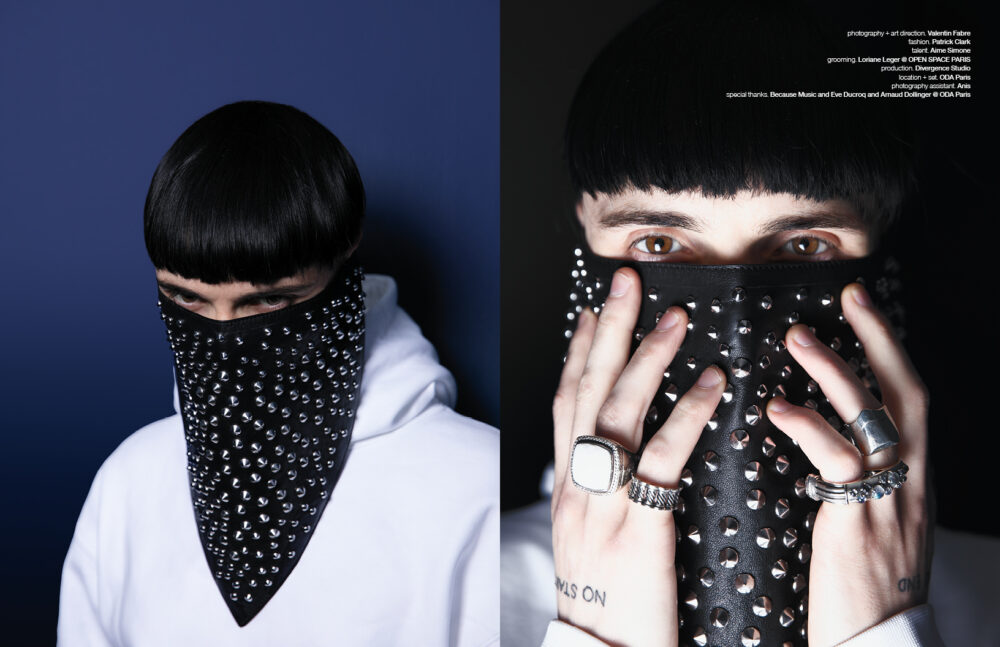
left
top. Stylist’s Own
mask. 1017 ALYX 9SM
right
top. Stylist’s Own
mask. 1017 ALYX 9SM
rings. Tant D’Avenir
How does your collaboration work? you’re partners IRL and in the project…
Since the day we met, the first minutes together, we started creating together. It was this vision we had – we wanted to be together, we wanted to create a life that would feel artistic and be free. Music wasn’t the art form Sonja was working on, I brought that into the mix. I was more ignorant about the aesthetic aspect of things. Sonja is American so she offered me a whole different perspective on lyrics. We evened out the differences, things she did better, things I did better, and we started to grow together as one. It’s like we’re one brain, one heart now [laughs].
What’s next?
The tour, first the French leg then in the UK, in Italy. In the fall, we have a European wide tour, and will be going to Canada. Playing live is one of my favourite parts of making music. Hopefully the music will touch people, and have an impact – and affect the way people make music, in our very DIY way. You can own the process from A to Z, I find it very exciting. I hope more and more people are free to do that.
Catch Aime Simone on tour
May 12th – The Great Escape – Brighton (UK)
June 4th – We Love Green – Paris (FR)
November 6th – La Cigale – Paris (FR)
November 27th – Circolo Magnolia – Milano (IT)
Oh Glory is out now on Because Music.
This Schön! editorial has been produced by
photography + art direction. Valentin Fabre
fashion. Patrick Clark
talent. Aime Simone
grooming. Loriane Leger @ OPEN SPACE PARIS
production. Divergence Studio
location + set. ODA Paris
photography assistant. Anis
special thanks. Because Music and Eve Ducroq and Arnaud Dollinger @ ODA Paris.






